

Though the presidency of the United States is a prestigious job, it does not pay as well as one might think. The annual presidential salary is $400,000. While this is still within the top 1% of American earners, it is very little when compared to the typical compensation given to America’s CEOs and executives.
However, many men who have occupied the highest office in the land did not need any salary at all. The presidency has long been a position held by men who had already inherited fortunes or earned them during their lifetimes.
In America’s early days, only property-owning white men were allowed to vote. Consequently, only the wealthy first participated in American politics, meaning the first presidents were all extremely well off.
With time, voting restrictions loosened, campaign finance regulations tightened, and people with more modest backgrounds began to rise to the presidency. Several U.S. presidents were either poor or in debt when they were elected president.
However, even as all these things have changed, the fact remains that the majority of presidents are independently wealthy, and only a very small number could have been fairly called poor at any point in their lifetimes. Fame and wealth continue to have an outsized impact on public perception. Wealth and the influence that can accompany it have not lost relevancy. President Donald Trump was able to leverage his personal wealth and fame to fund the majority of his successful political campaign.
24/7 Wall St. examined the finances of every American president, from George Washington to Donald Trump. For the purposes of comparison, we provided net worth figures for each president in current dollars. Because a number of presidents, particularly in the early 19th century, made and lost huge fortunes in a matter of a few years, we only provided each president’s net worth at their peak.
Click here to see the net worth of every American President.
Click here to see our detailed findings and methodology.
Correction: A previous version of this piece incorrectly attributed Martha Washington’s wealth to inheritance from her father. In fact, her inheritance came from her deceased first husband.
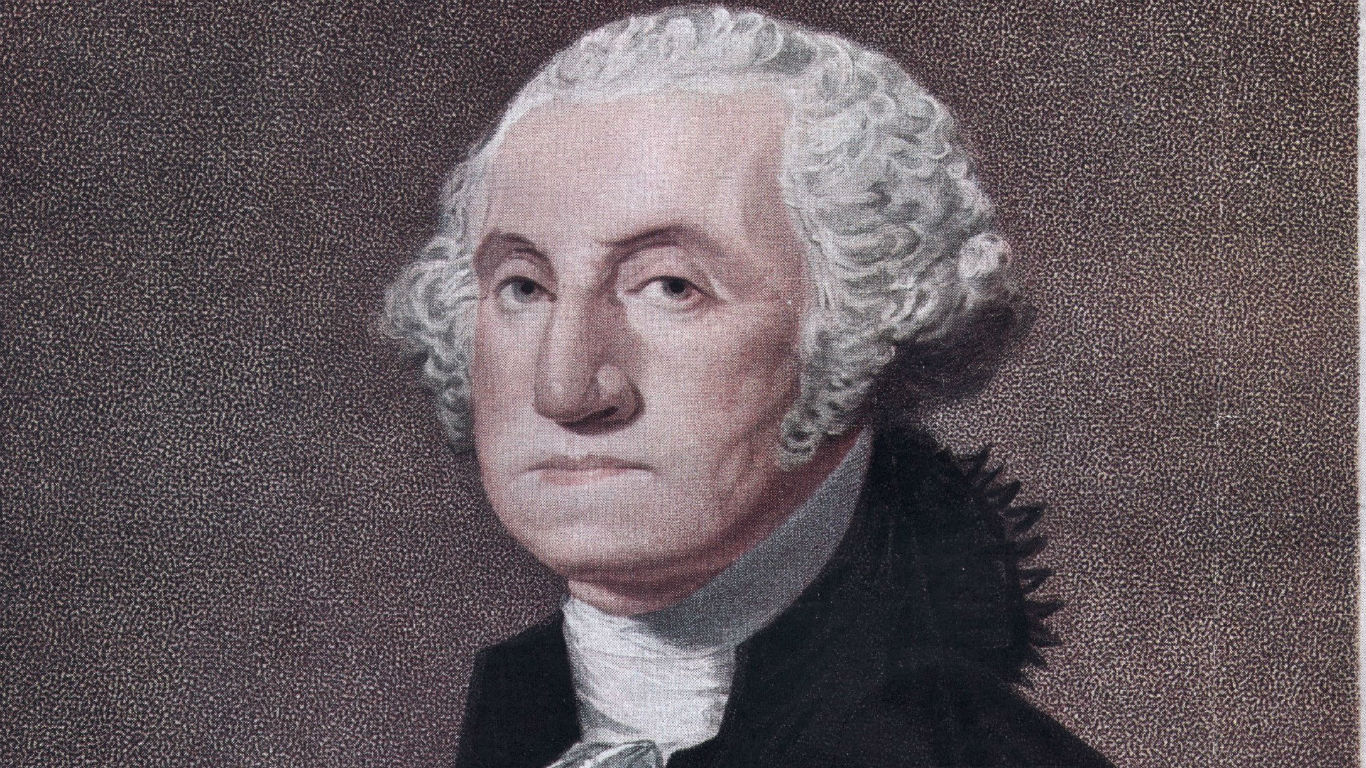
George Washington
> Term: 1789-1797 (1st president)
> Peak net worth (in current dollars): $587.0 million
His Virginia plantation, “Mount Vernon,” consisted of five separate farms on 8,000 acres of prime farmland, run by over 300 slaves. His wife, Martha Washington, inherited a substantial amount of property from her first husband. Washington made significantly more than subsequent presidents: his salary was two percent of the total U.S. budget in 1789.
[in-text-ad]
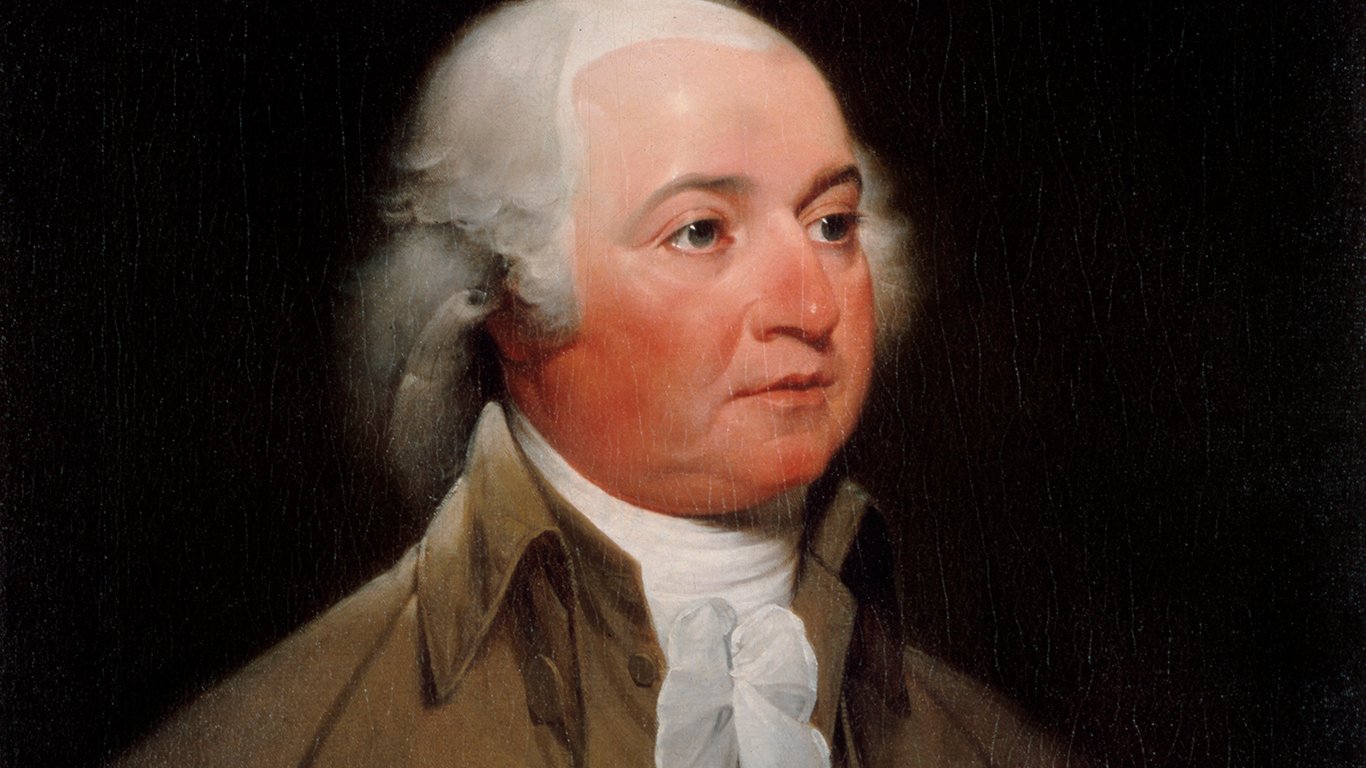
John Adams
> Term: 1797-1801 (2nd president)
> Peak net worth (in current dollars): $21.3 million
Adams received a modest inheritance from his father. His wife, Abigail Adams, was a member of the Quincys, a prestigious Massachusetts family. Adams owned a handsome estate in Quincy, Massachusetts. The estate, known as “Peacefield,” covered approximately 40 acres. He also had a thriving law practice.
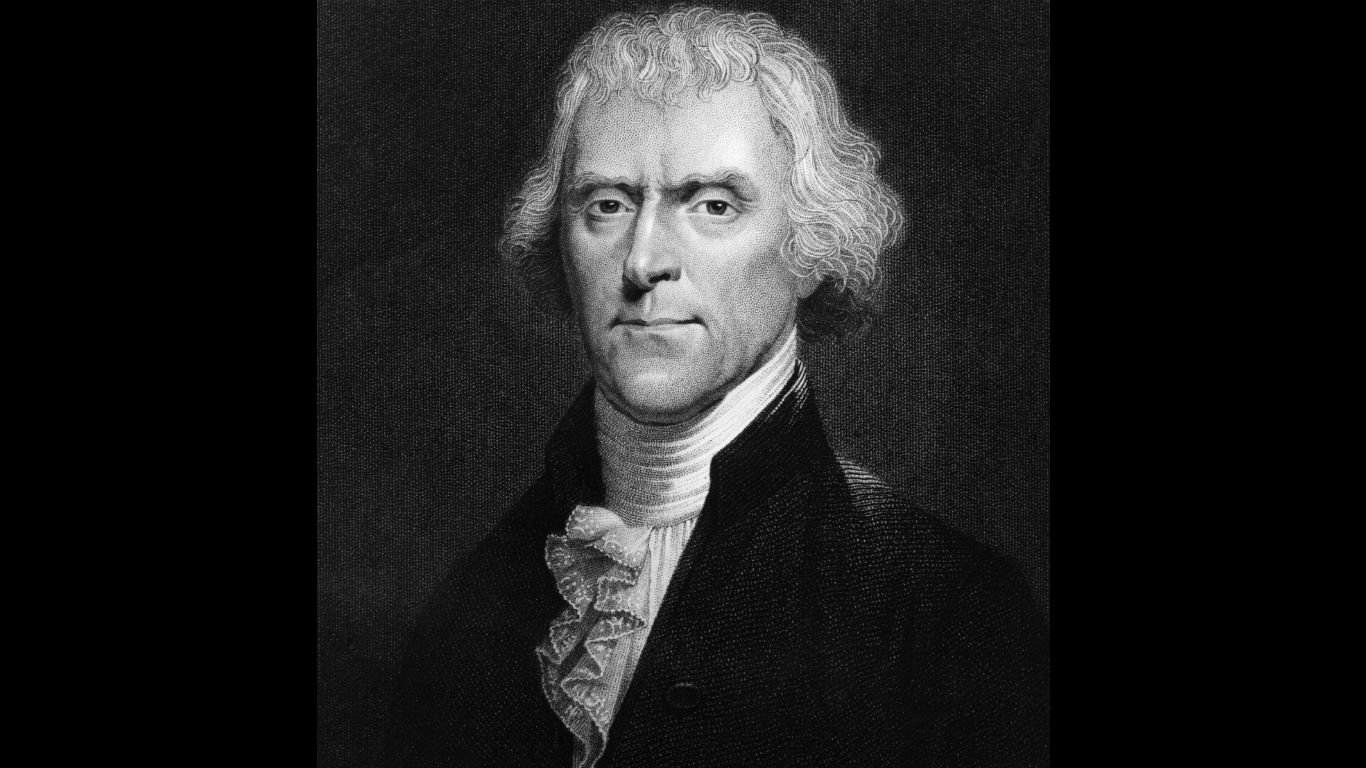
Thomas Jefferson
> Term: 1801-1809 (3rd president)
> Peak net worth (in current dollars): $236.8 million
Jefferson was left 3,000 acres and several dozen slaves by his father. “Monticello,” his home on a 5,000 acre plantation in Virginia, was one of the architectural wonders of its time. He made significant money in various political positions before becoming president, but was left mired in debt towards the end of his life.
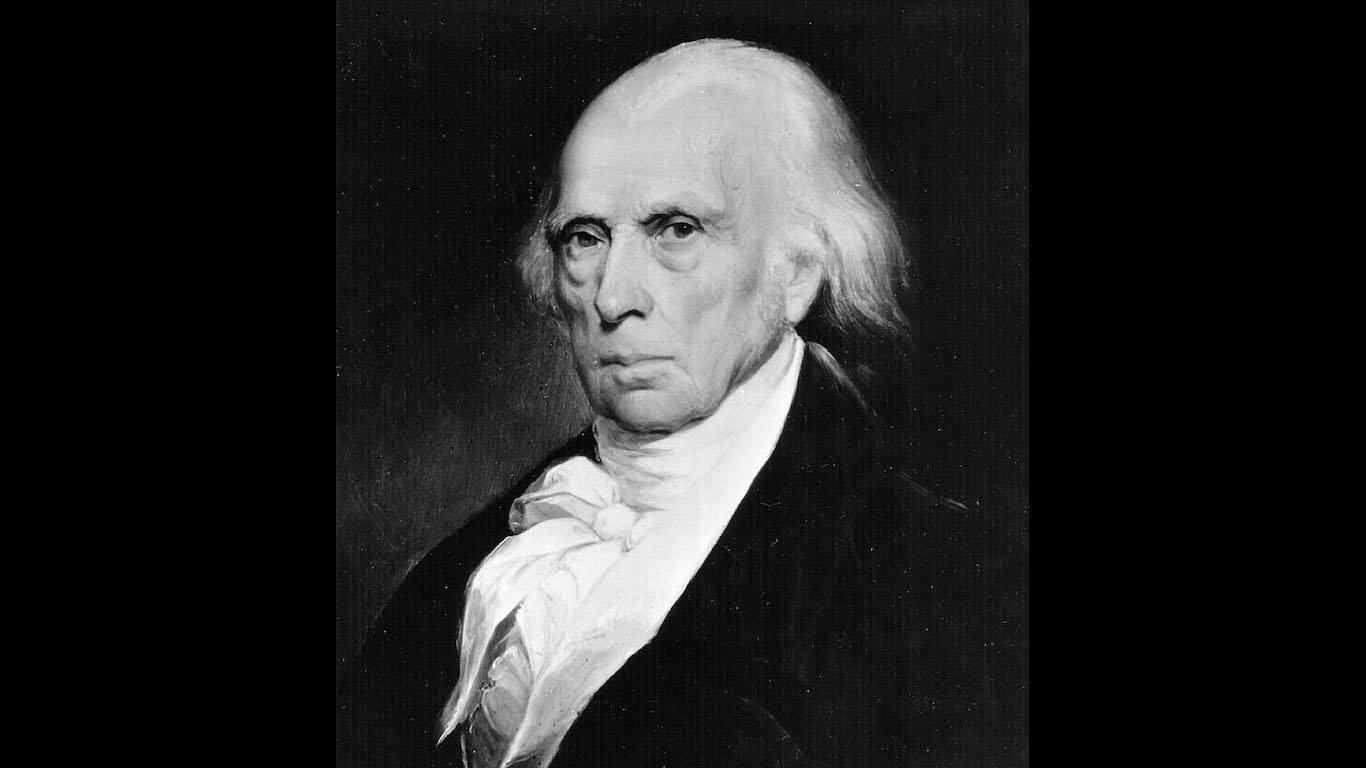
James Madison
> Term: 1809-1817 (4th president)
> Peak net worth (in current dollars): $113.3 million
Madison was the largest landowner in Orange County, Virginia, with land holding consisting of 5,000 acres and the “Montpelier” estate. He made significant money as secretary of state and president. Madison lost money at the end of his life due to the steady financial collapse of his plantation.
[in-text-ad-2]
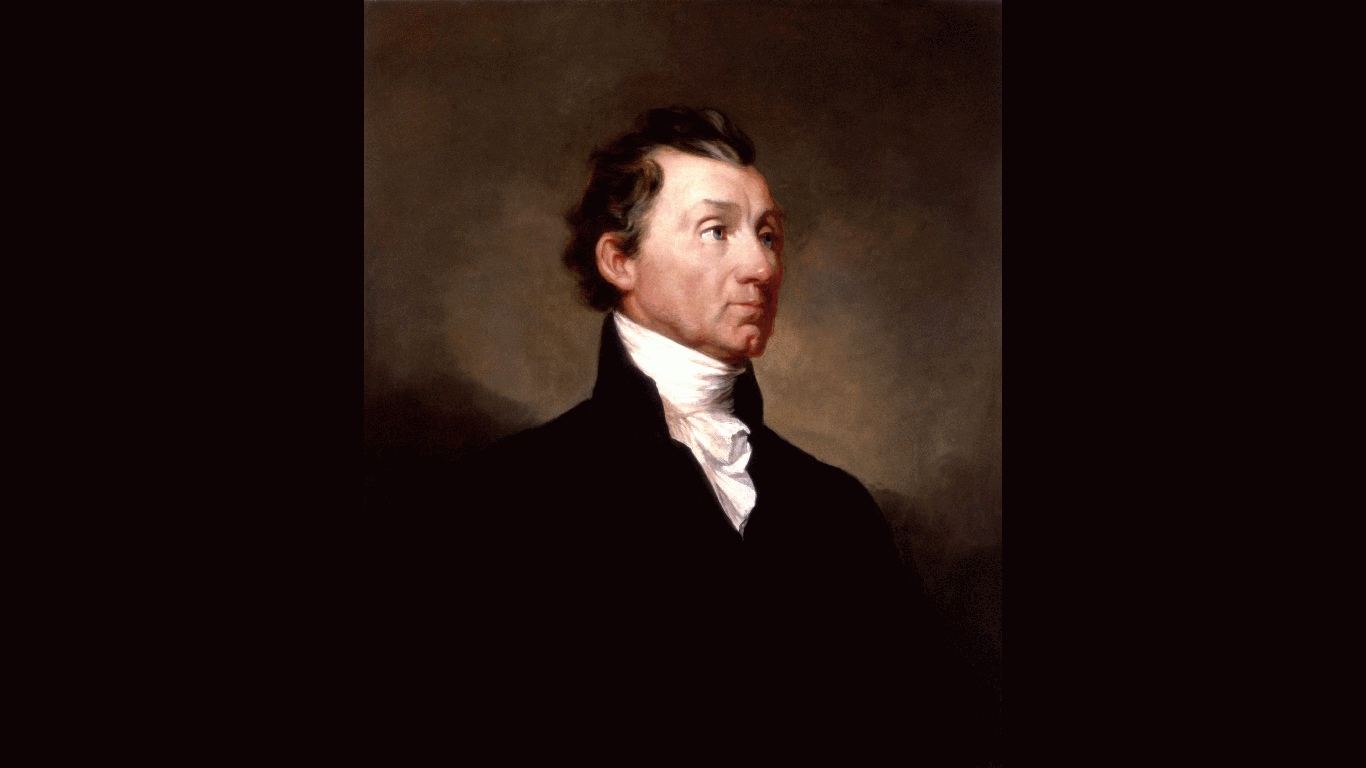
James Monroe
> Term: 1817-1825 (5th president)
> Peak net worth (in current dollars): $30.4 million
Monroe’s wife, Elizabeth, was the daughter of wealthy British officer. He made significant money during eight years as president, but entered retirement severely in debt and was forced to sell his Highland plantation, which included 3,500 acres.
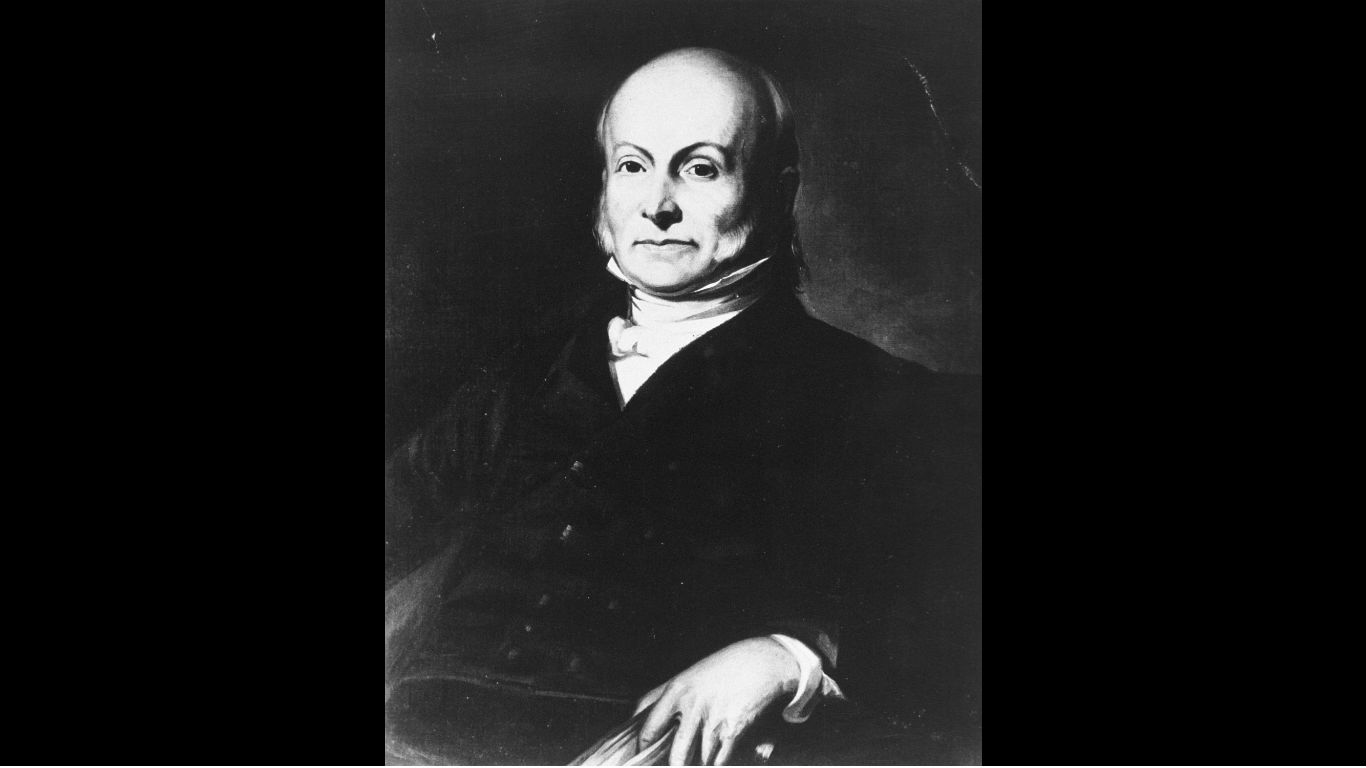
John Quincy Adams
> Term: 1825-1829 (6th president)
> Peak net worth (in current dollars): $23.3 million
Adams inherited most of his father’s land. His wife was the daughter of a wealthy merchant. He devoted most of his adult life to public service, notably after leaving office.
[in-text-ad]
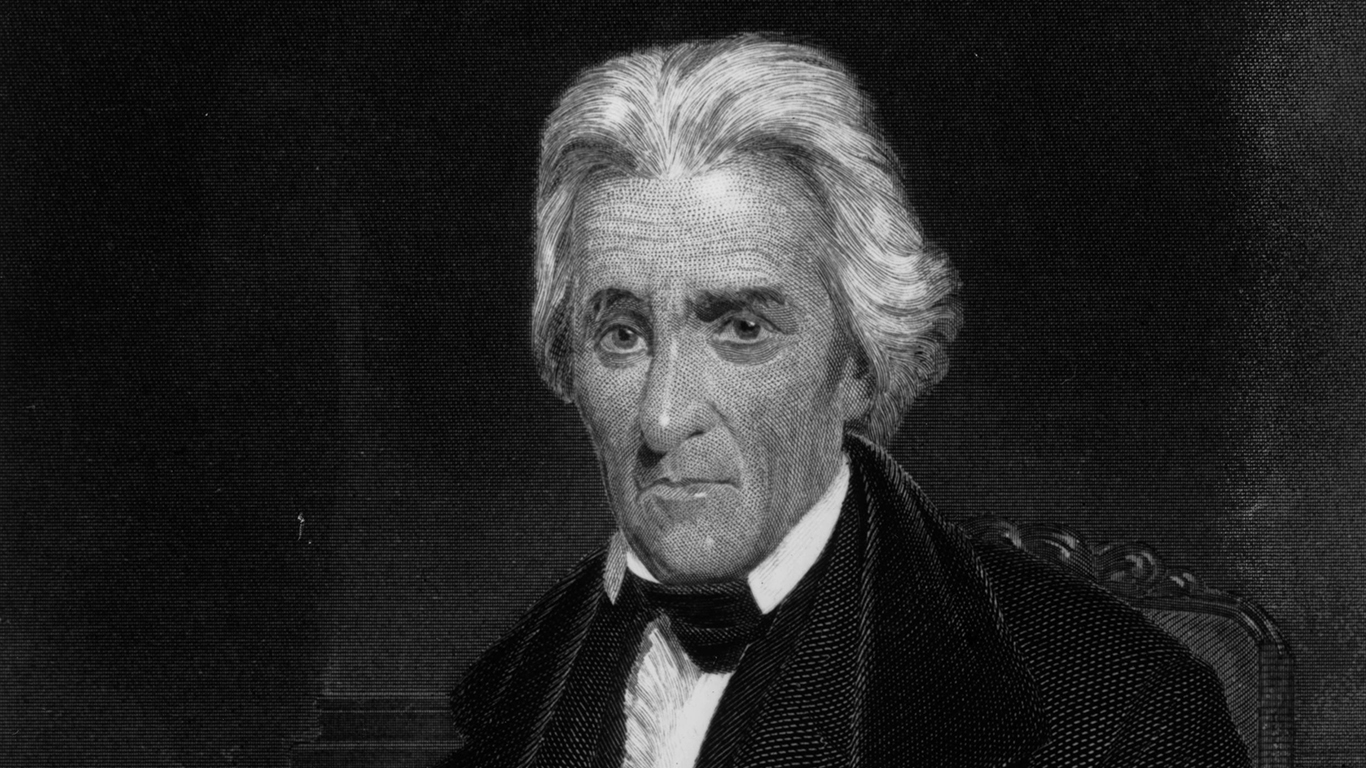
Andrew Jackson
> Term: 1829-1837 (7th president)
> Peak net worth (in current dollars): $132.6 million
While he was considered to be in touch with the average middle class American, Jackson quietly became one of the wealthiest presidents of the 1800’s. “Old Hickory” married into wealth and made money in the military. His homestead ”The Hermitage” included 1,050 acres of prime real estate. Over the course of his life, he owned as many as 300 slaves.
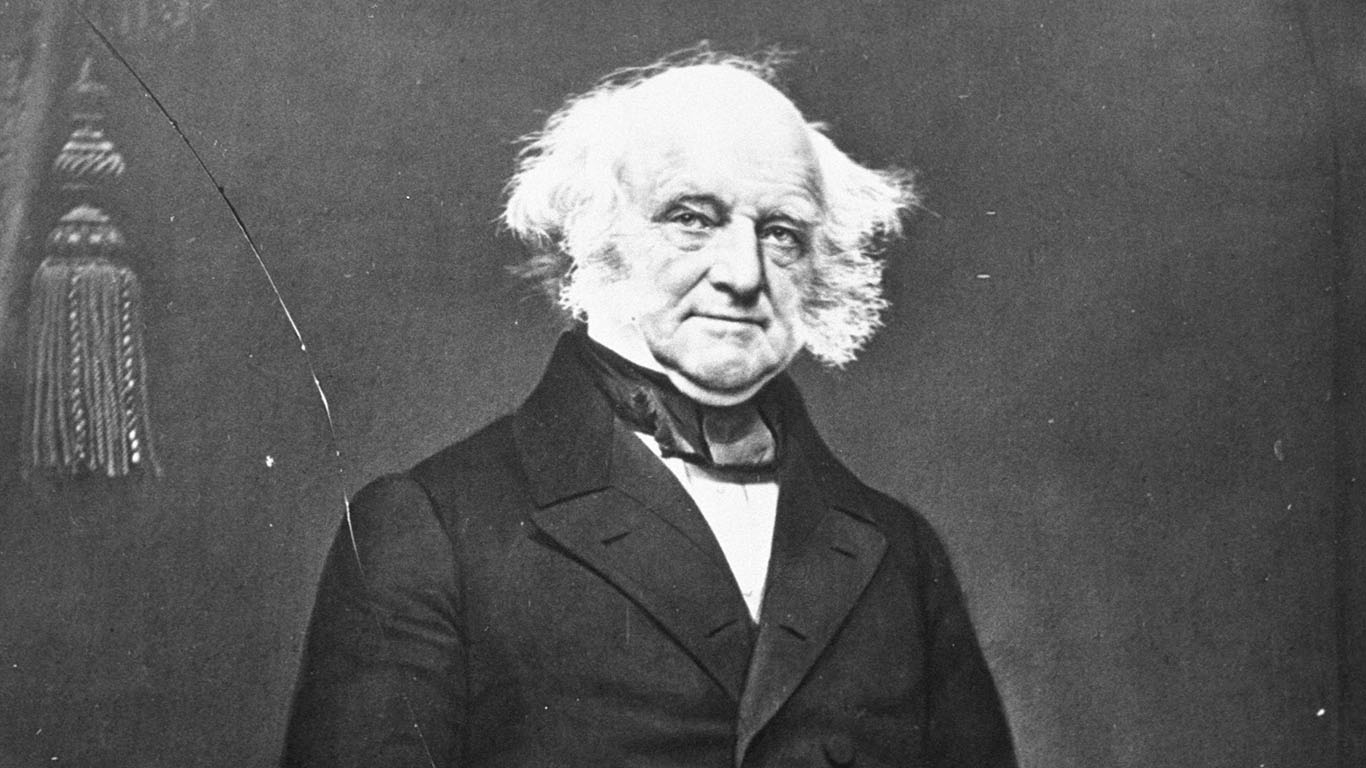
Martin Van Buren
> Term: 1837-1841 (8th president)
> Peak net worth (in current dollars): $29.3 million
Van Buren made substantial income as an attorney. He was one of only two men to serve as secretary of state, vice president, and president. He owned the 225-acre “Lindenwald” estate in upstate New York.
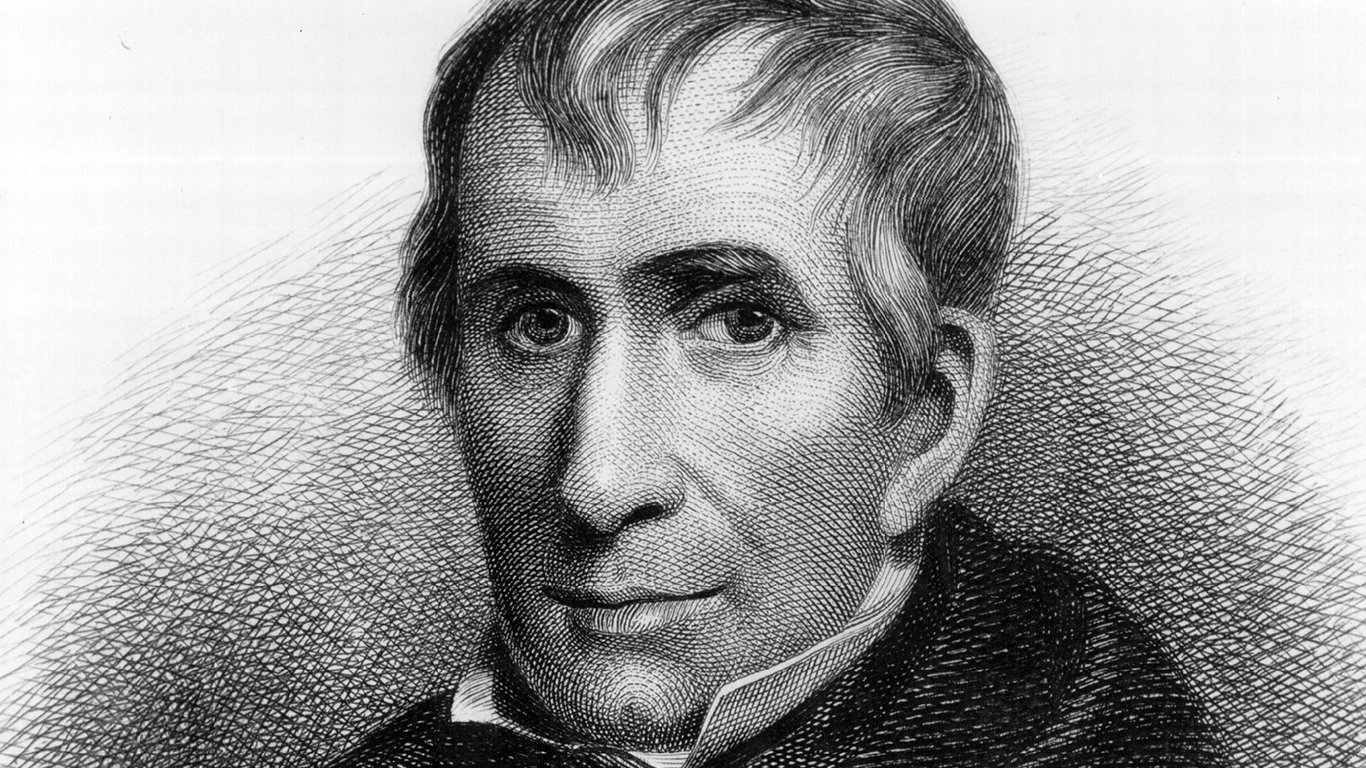
William Henry Harrison
> Term: 1841 (9th president)
> Peak net worth (in current dollars): $6.1 million
Harrison married into money – his wife’s father was a prominent judge and landowner. When Harrison’s mother died, he inherited 3,000 acres near Charles City, Virginia, which he later sold to his brother. He also owned “Grouseland” mansion and property in Vincennes, Indiana. Despite his assets, Harrison died penniless, causing Congress to create a special pension for his widow.
[in-text-ad-2]
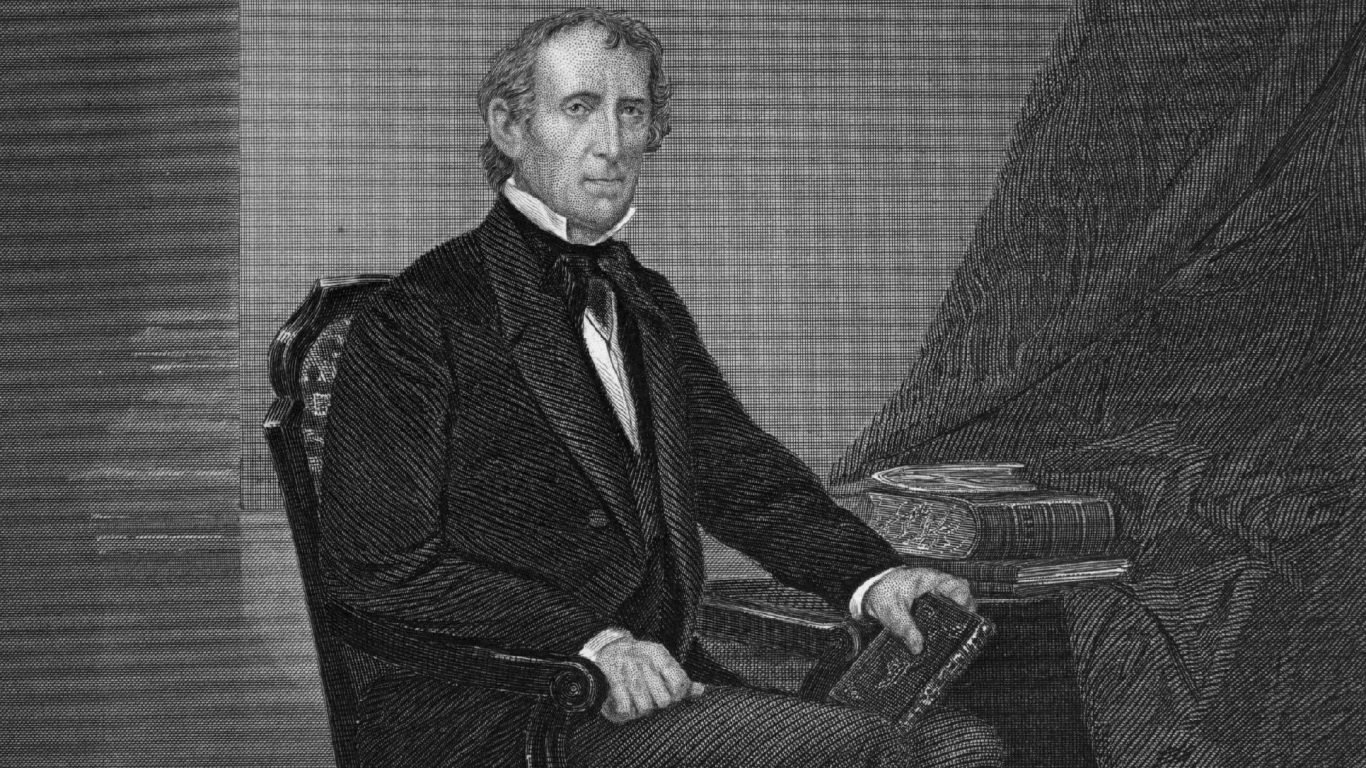
John Tyler
> Term: 1841-1845 (10th president)
> Peak net worth (in current dollars): $57.7 million
Tyler inherited a 1,000-acre tobacco plantation. His first wife, Letitia, was wealthy. Tyler bought “Sherwood Manor,” a 1,600 acre estate, previously owned by William Henry Harrison. He became indebted during the Civil War and died poor.
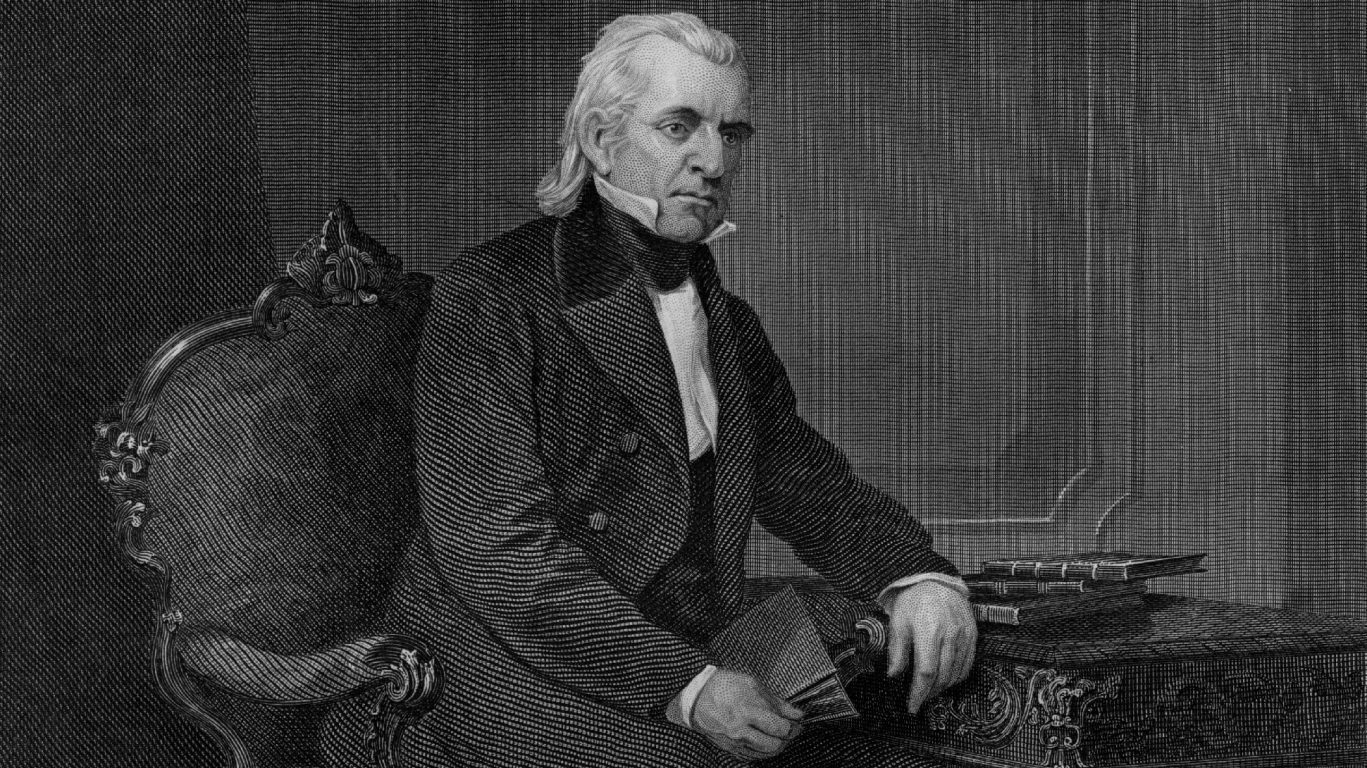
James Knox Polk
> Term: 1845-1849 (11th president)
> Peak net worth (in current dollars): $11.1 million
Like his wife, Sarah Childress, Polk’s father was a wealthy plantation owner and speculator. Polk made significant sums as speaker of the house and governor of Tennessee, and owned 920 acres in Coffeeville, Mississippi, as well as 25 slaves.
[in-text-ad]
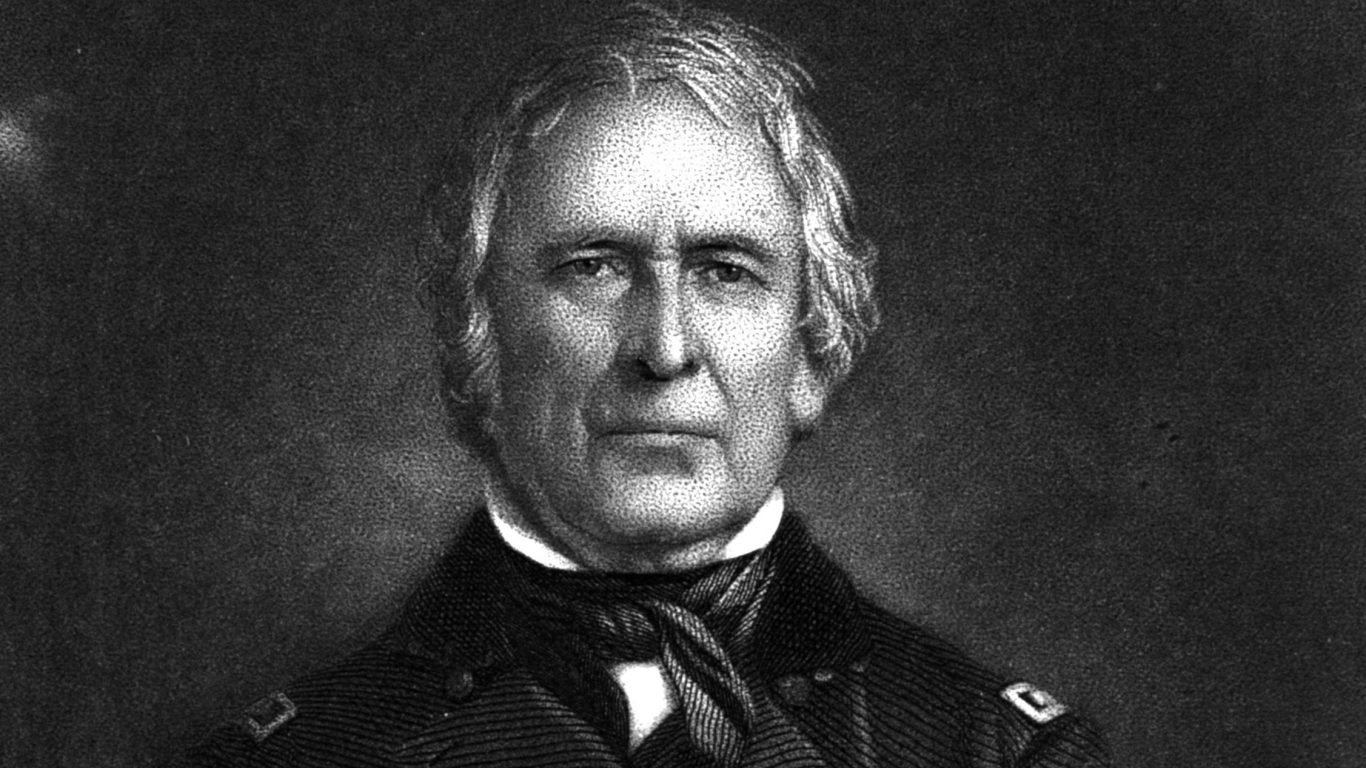
Zachary Taylor
> Term: 1849-1850 (12th president)
> Peak net worth (in current dollars): $7.1 million
Taylor inherited significant amounts of land from his family, which at one point included property in Mississippi, Kentucky, and Louisiana. He made substantial money in land speculation, the leasing of warehouses, and investments in bank and utility stocks. Taylor owned a sizeable plantation in Mississippi and a home in Baton Rouge.
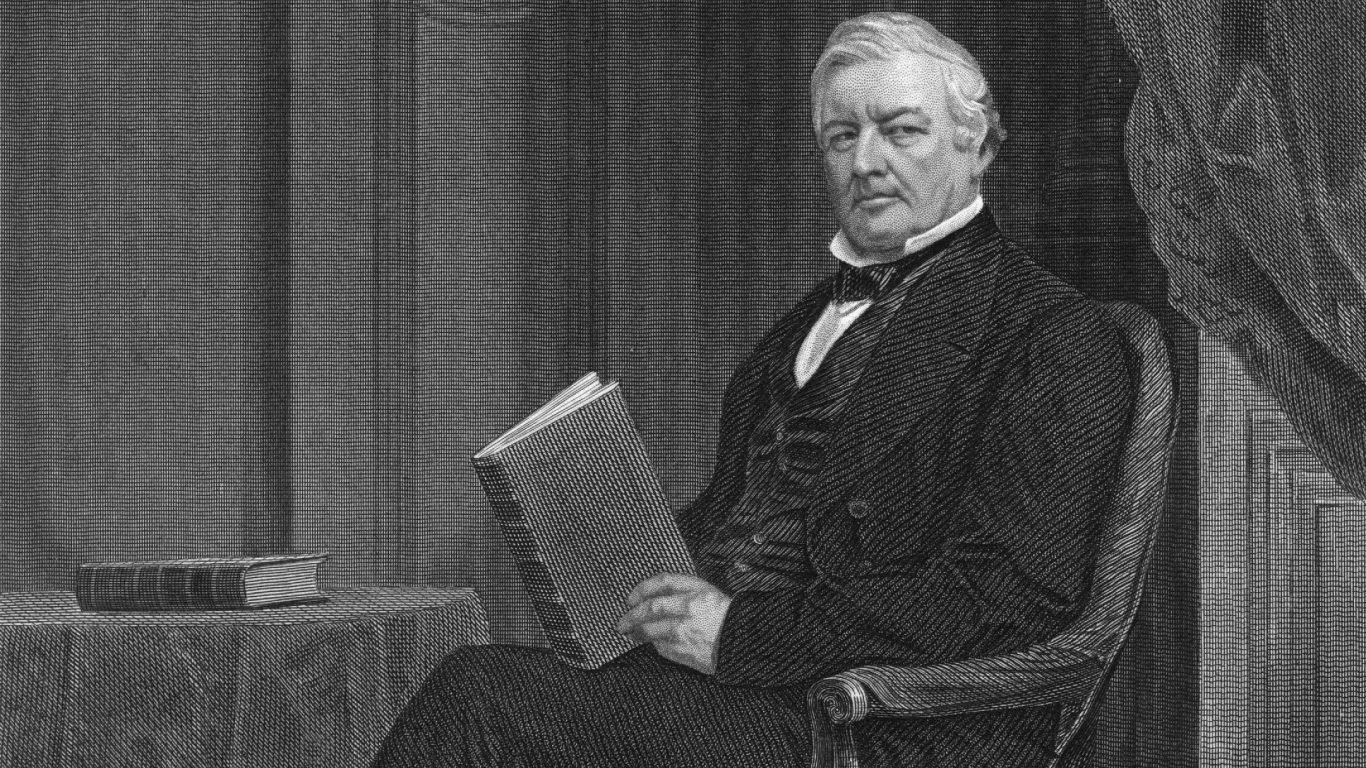
Millard Fillmore
> Term: 1850-1853) (13th president)
> Peak net worth (in current dollars): $4.0 million
Neither Fillmore nor his wife had significant inheritance. He founded a college that is the currently the State University of New York at Buffalo, and his primary holding was a house in nearby East Aurora, New York.
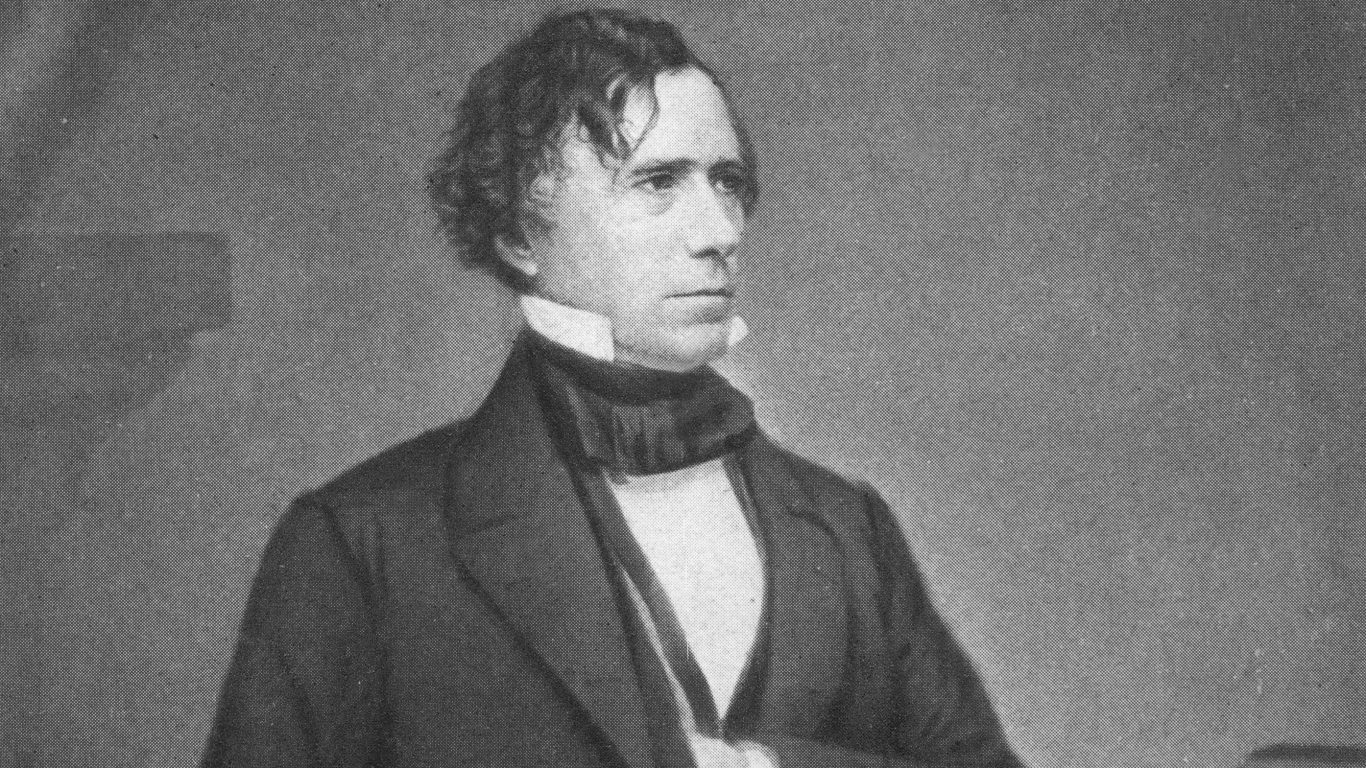
Franklin Pierce
> Term: 1853-1857 (14th president)
> Peak net worth (in current dollars): $2.0 million
Pierce’s father was frontier farmer, and his wife was a well-to-do aristocrat. He had a background in law and held property in Concord, New Hampshire.
[in-text-ad-2]
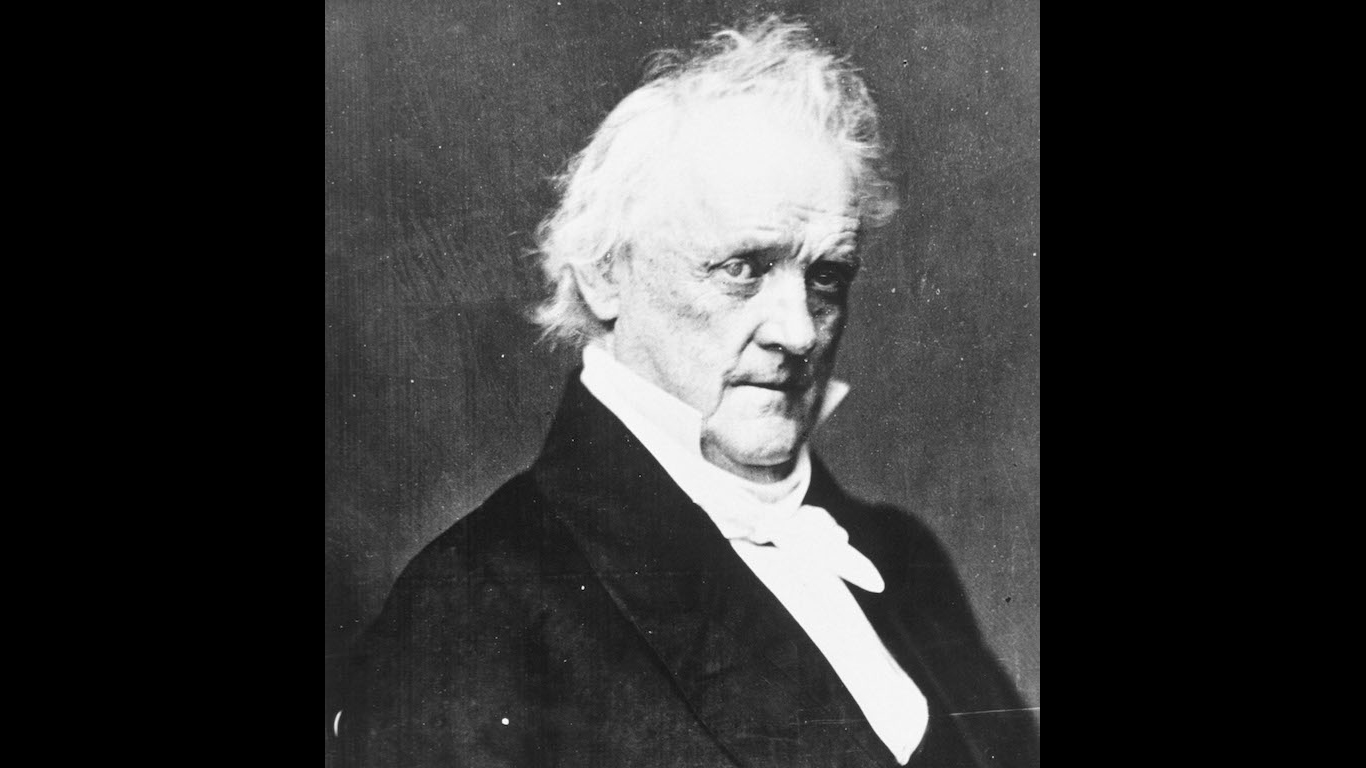
James Buchanan
> Term: 1857-1861 (15th president)
> Peak net worth (in current dollars): < $1 million
Born in a log cabin in Pennsylvania, Buchanan was one of 11 children. He was the only president never to marry. He worked for nine years as attorney, and spent 16 years in public office, including four years as secretary of state.

Abraham Lincoln
> Term: 1861-1865 (16th president)
> Peak net worth (in current dollars): < $1 million
Born in a log cabin, Lincoln served as an attorney for 17 years before his presidency. He also worked in manual labor and had a failed general store. He owned a single-family home in Springfield, Illinois.
[in-text-ad]
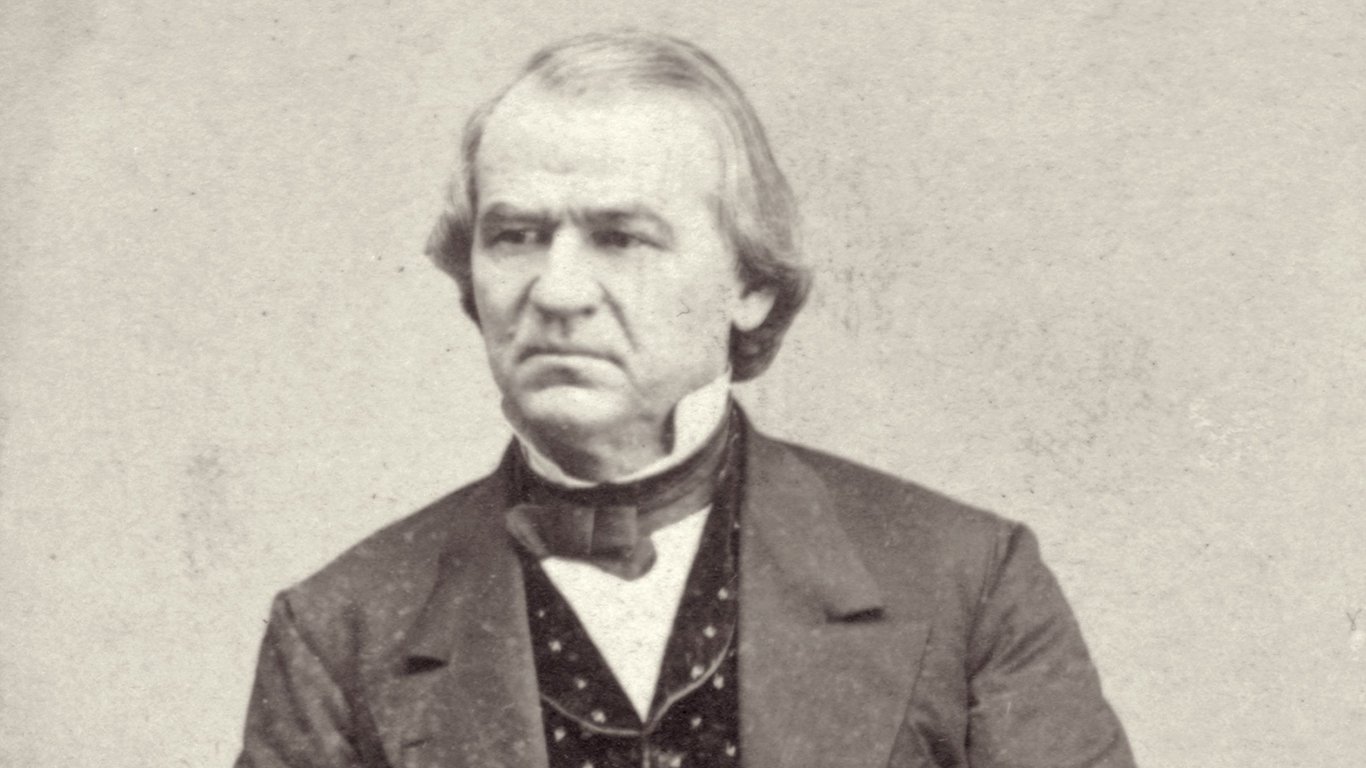
Andrew Johnson
> Term: 1865-1869 (17th president)
> Peak net worth (in current dollars): < $1 million
Johnson’s father was a tailor, and his wife was a shoemaker. He served the public for 20 years, including as Governor of Tennessee and U.S. Senator. Johnson owned a small house in Greeneville, Tennessee.

Ulysses Simpson Grant
> Term: 1869-1877 (18th president)
> Peak net worth (in current dollars): < $1 million
Grant’s father was a tanner, and his wife was the daughter of a wealthy merchant. He lost his entire fortune when he was swindled by an investing partner. Grant owned a modest home in Galena, Illinois. Although he died with little money, his autobiography, published posthumously, kept his family afloat.
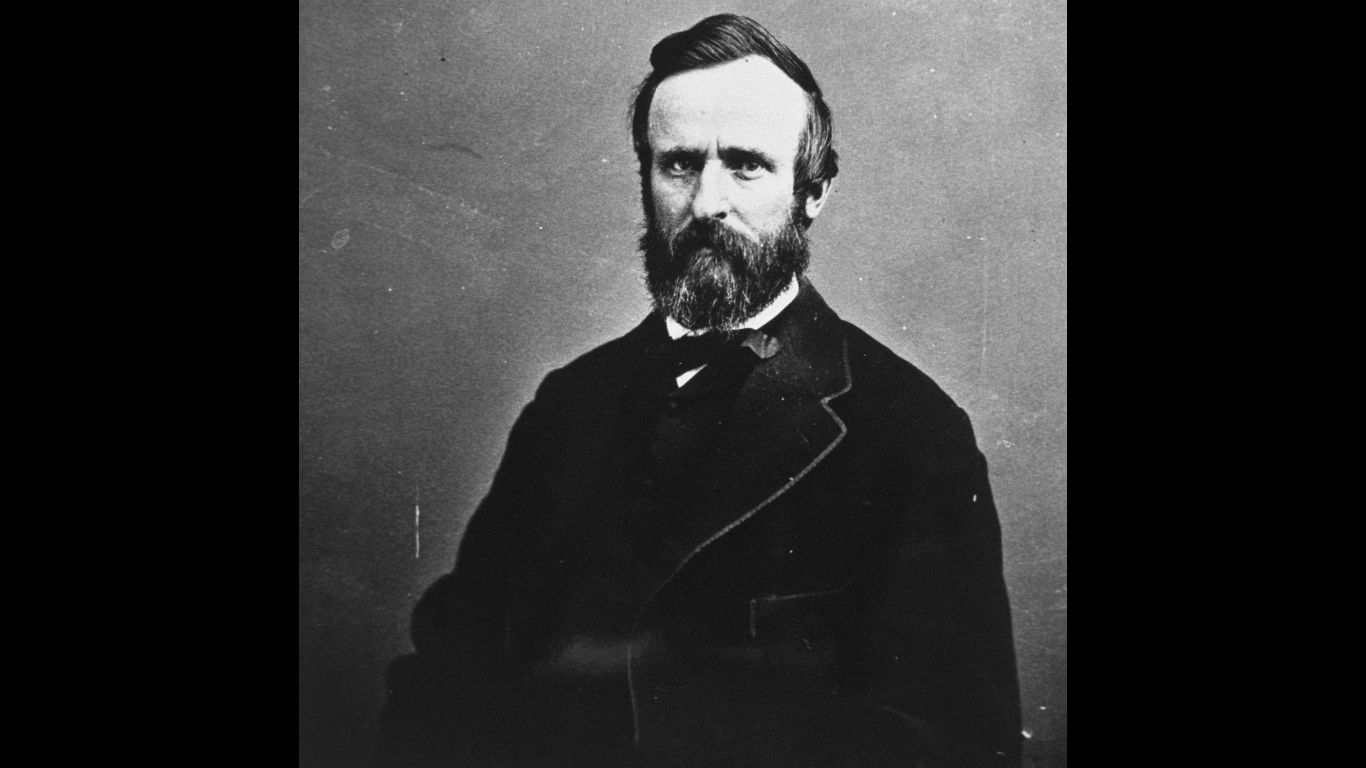
Rutherford Birchard Hayes
> Term: 1877-1881 (19th president)
> Peak net worth (in current dollars): $3.0 million
Hayes’ father was a shopkeeper. Hayes was an attorney for 15 years and owned “Spiegel Grove,” a 10,000 square foot home that sat on 25 acres in Fremont, Ohio. Hayes also served as Governor of Ohio and was a member of the House.
[in-text-ad-2]
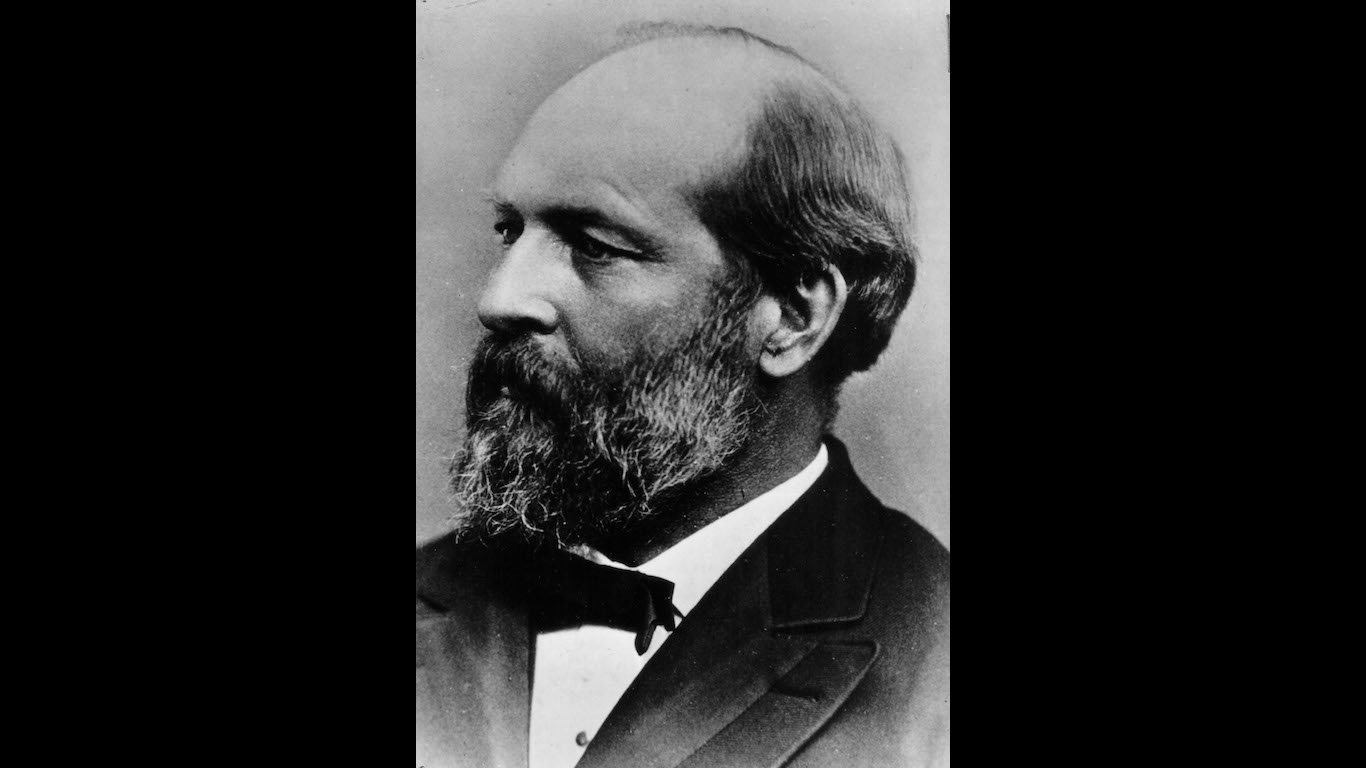
James Abram Garfield
> Term: 1881-1881 (20th president)
> Peak net worth (in current dollars): < $1 million
Garfield was born in a log cabin in Ohio. He spent 18 years in the House of Representatives. Garfield owned “Lawnfield,” a home and small property in Mentor, Ohio. He was assassinated during the first year of his term and never amassed wealth.
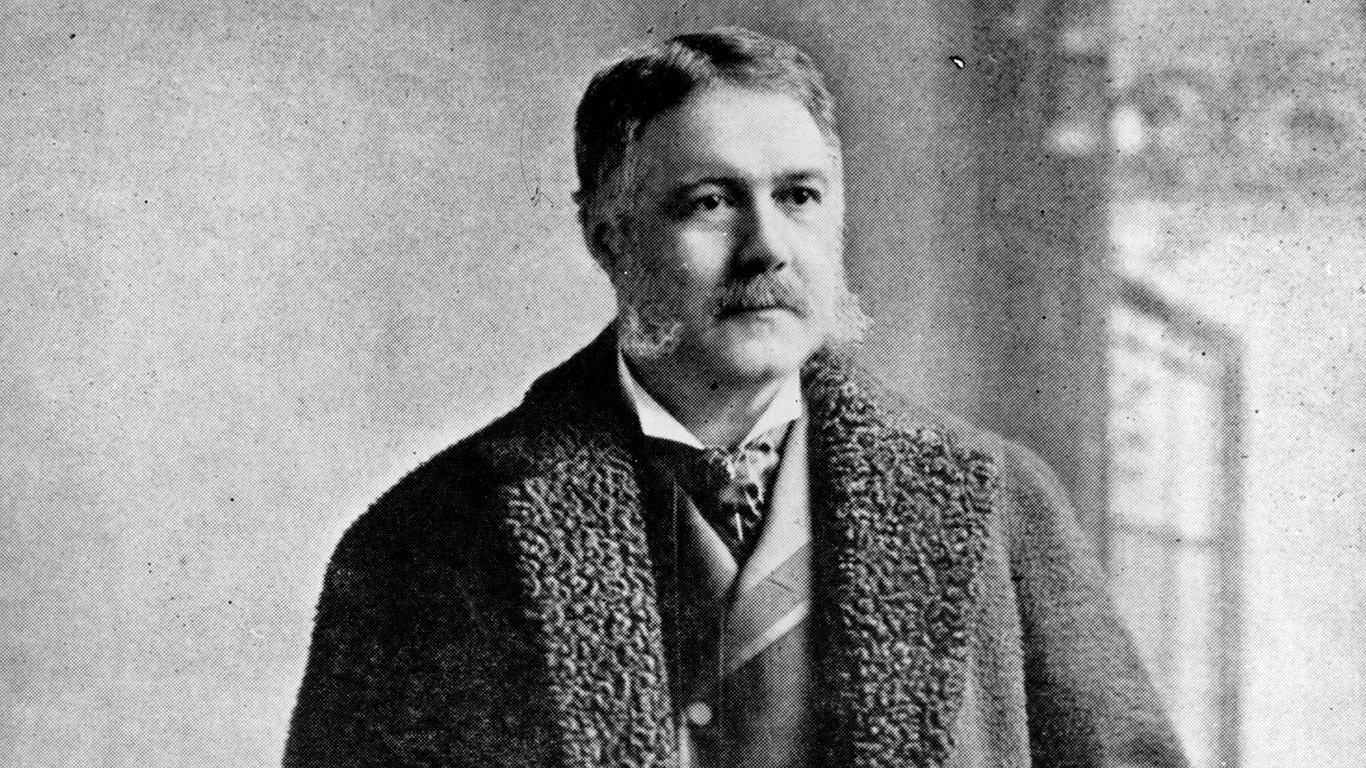
Chester Alan Arthur
> Term: 1881-1885 (21st president)
> Peak net worth (in current dollars): < $1 million
The son of an Irish preacher, Arthur’s wife came a from military family. He made substantial sums as Collector for the Port of New York. His townhouse in New York was well-appointed with furniture commissioned from Tiffany.
[in-text-ad]
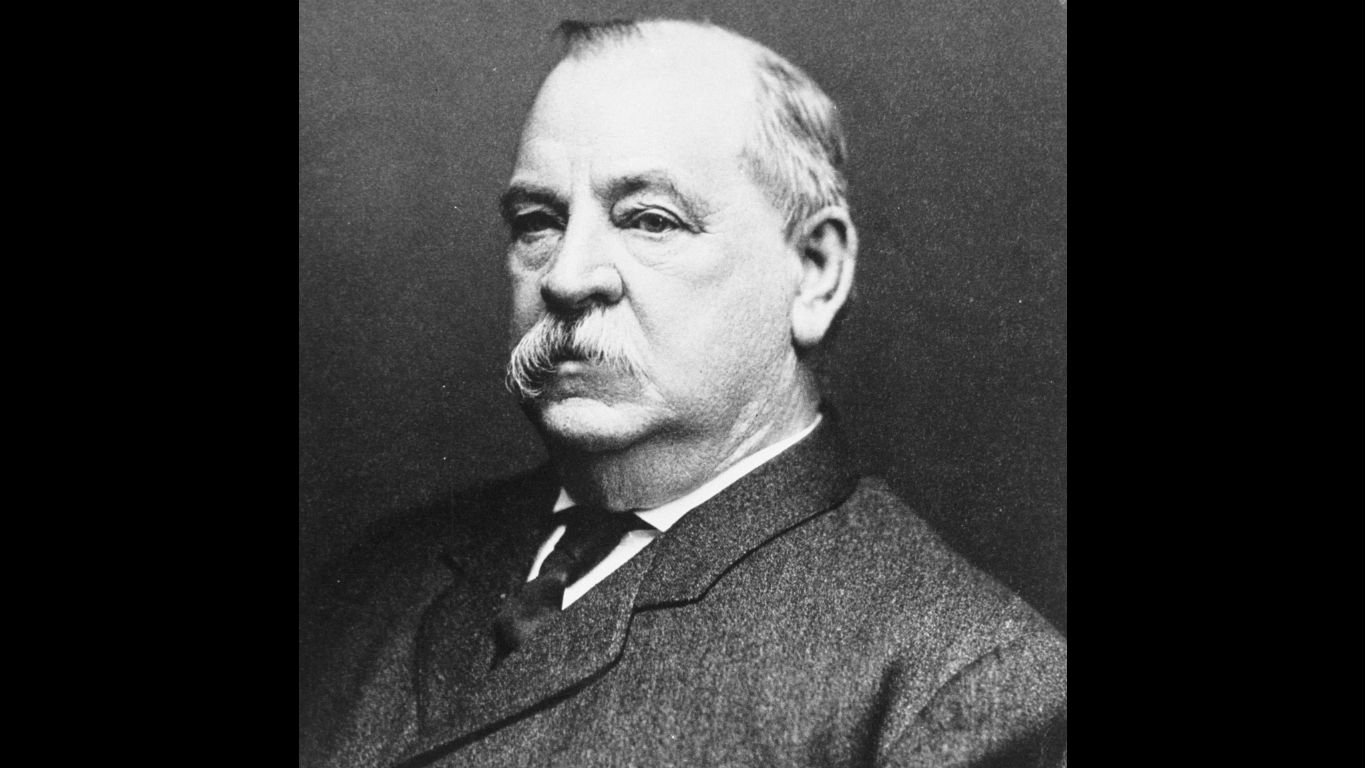
Grover Cleveland
> Term: 1885-1889, 1893-1897 (22nd, 24th president)
> Peak net worth (in current dollars): $28.3 million
Cleveland’s father was a bookseller and preacher, and his wife was the daughter of wealthy lawyer. Cleveland served as an attorney for twelve years, and also made significant sums on the sale of his estate outside of Washington, D.C. He bought “Westland Mansion” near Princeton, New Jersey.
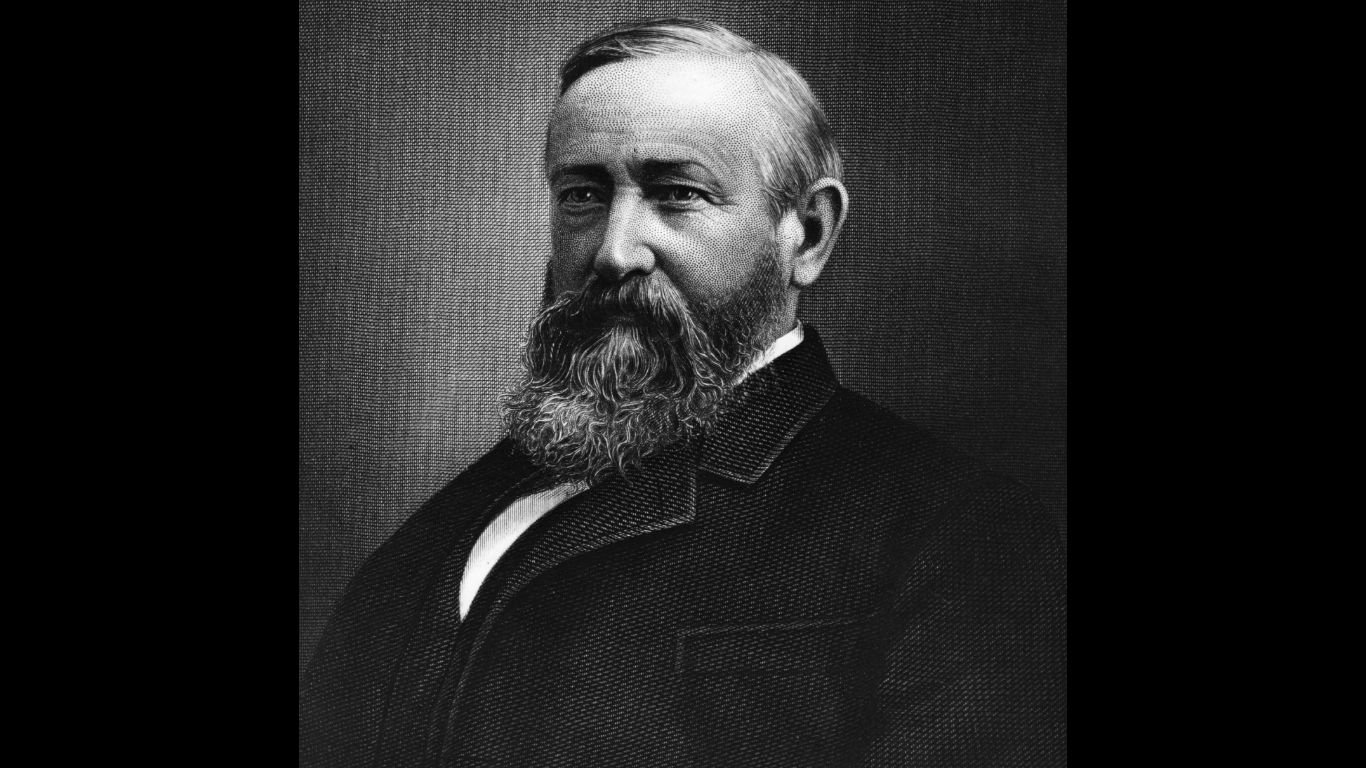
Benjamin Harrison
> Term: 1889-1893 (23rd president)
> Peak net worth (in current dollars): $6.1 million
Harrison had no significant inheritance of his own or from his wife’s family. He was a highly-paid attorney for 18 years, and served as attorney for the Republic of Venezuela in a border dispute. Harrison owned large Victorian home in Indianapolis, Indiana.
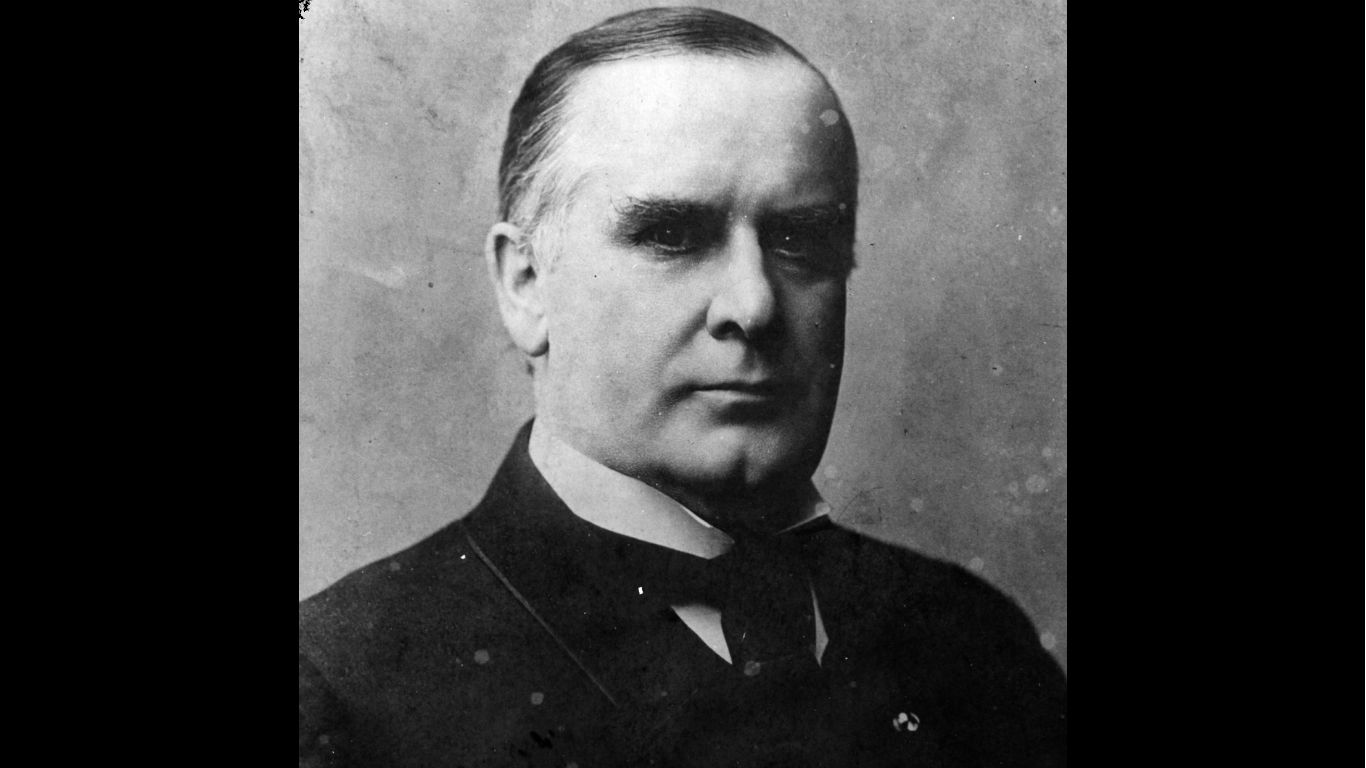
William McKinley
> Term: 1897-1901 (25th president)
> Peak net worth (in current dollars): $1.0 million
McKinley had no significant inheritance. He held many public service positions across 30 years, including serving as a local prosecutor and a member of the House of Representatives. McKinley went bankrupt during the depression of 1893 while he was Governor of Ohio.
[in-text-ad-2]
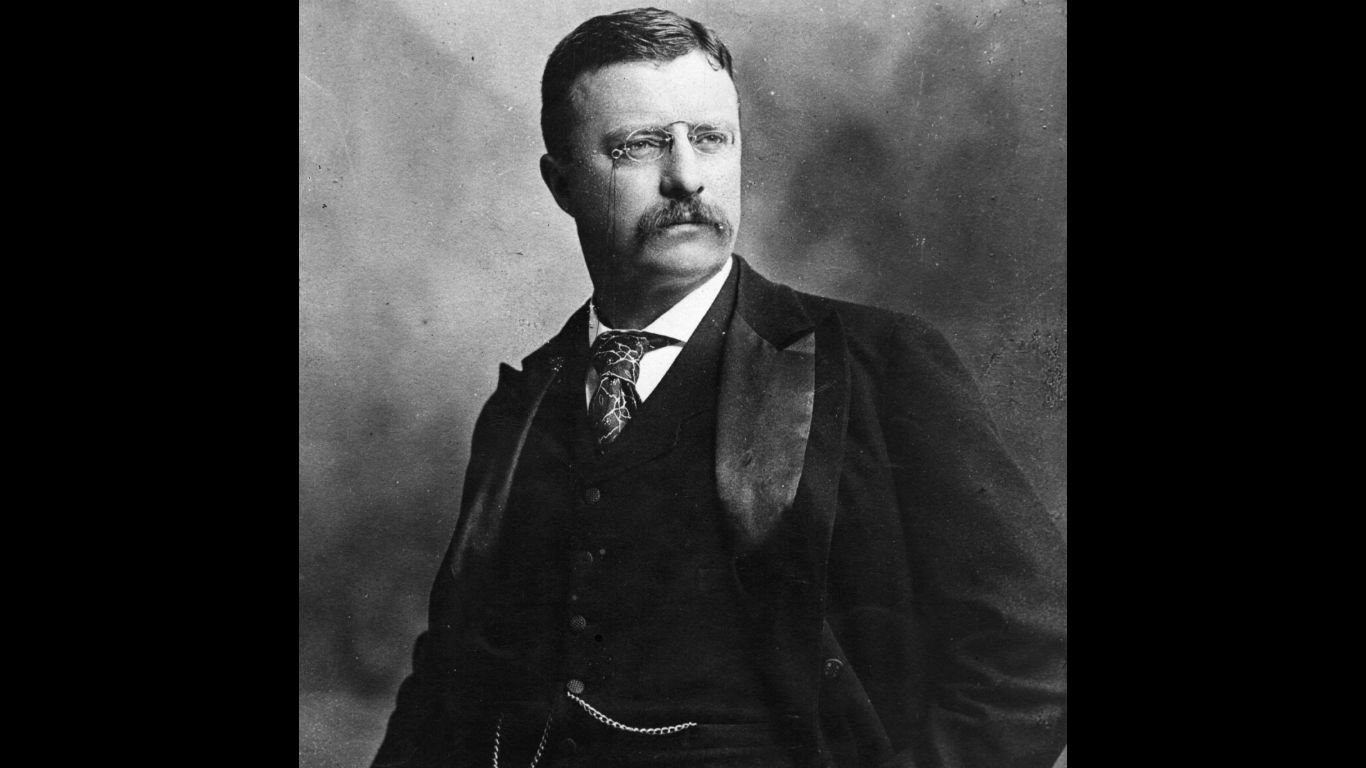
Theodore Roosevelt
> Term: 1901-1909 (26th president)
> Peak net worth (in current dollars): $139.7 million
Born to a prominent and wealthy family, Roosevelt received a significant trust fund. He lost most of his money on a ranching venture in the Dakotas and had to work as an author to pay bills. Roosevelt spent most of his adult years in public service. His 235-acre estate, “Sagamore Hill,” sits on some of the most valuable real estate on Long Island.
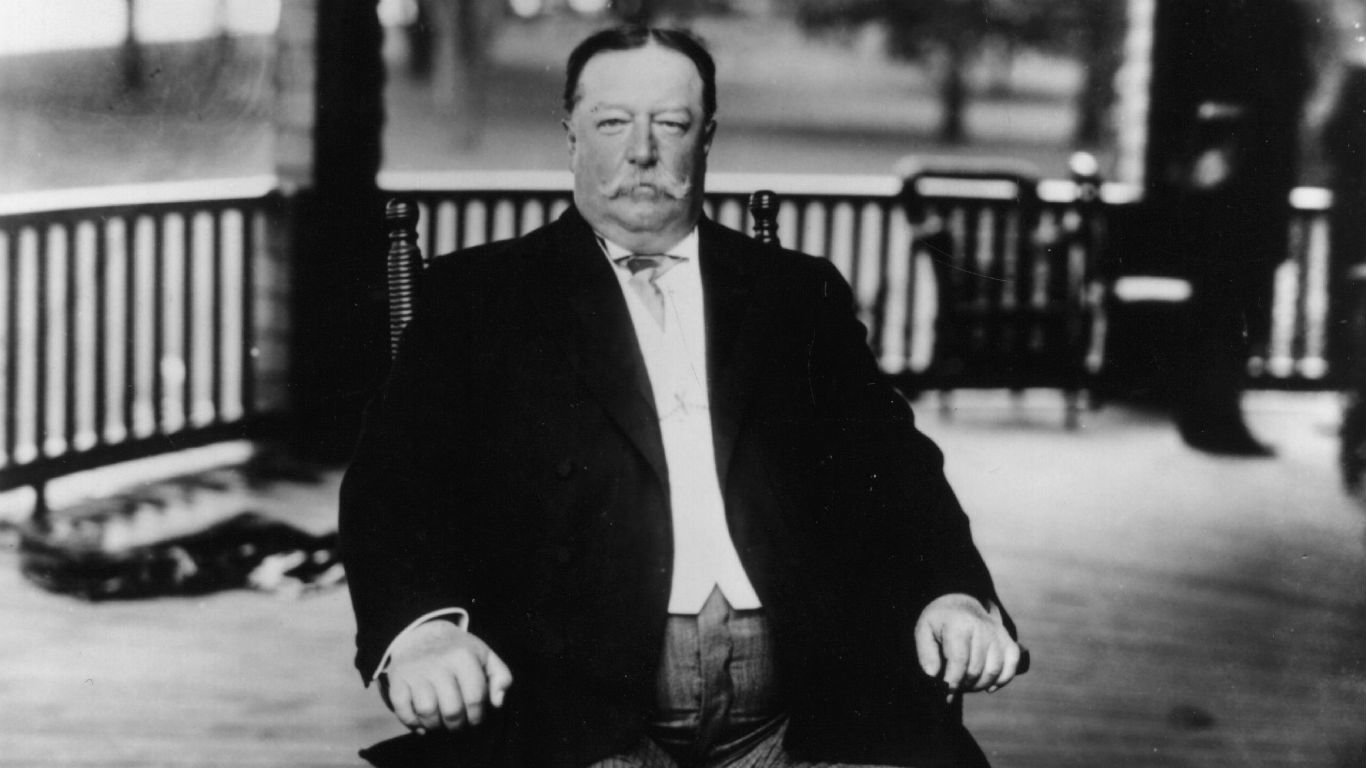
William Howard Taft
> Term: 1909-1913 (27th president)
> Peak net worth (in current dollars): $3.0 million
Taft’s father-in-law was a law partner of former president Rutherford B. Hayes. Taft was president of the American Bar Association, an active attorney for nearly two decades, and the only president to serve on the U.S. Supreme Court.
[in-text-ad]
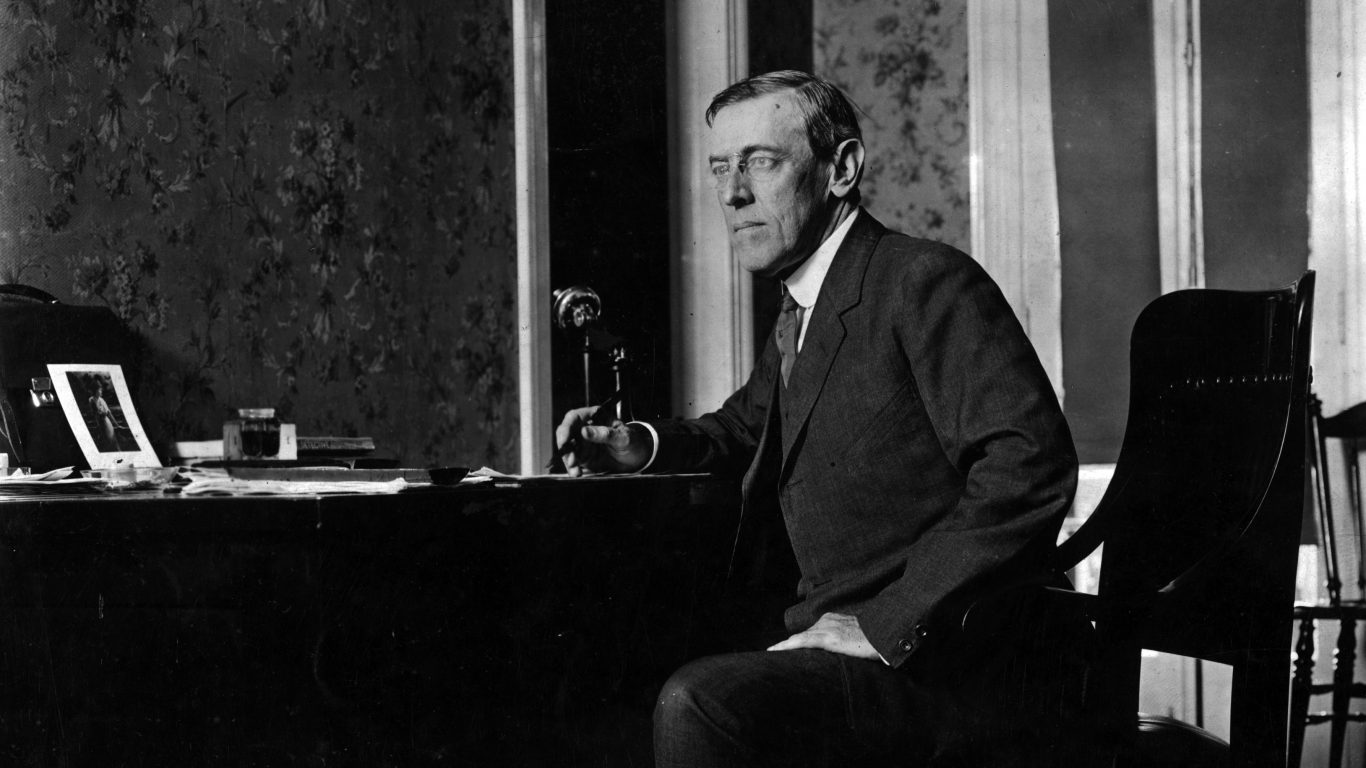
Woodrow Wilson
> Term: 1913-1921 (28th president)
> Peak net worth (in current dollars): < $1 million
Wilson received modest compensation as head of Princeton and Governor of New Jersey. He never served in any position that provided him with a substantial income. Wilson had a stroke in office and died five years later.
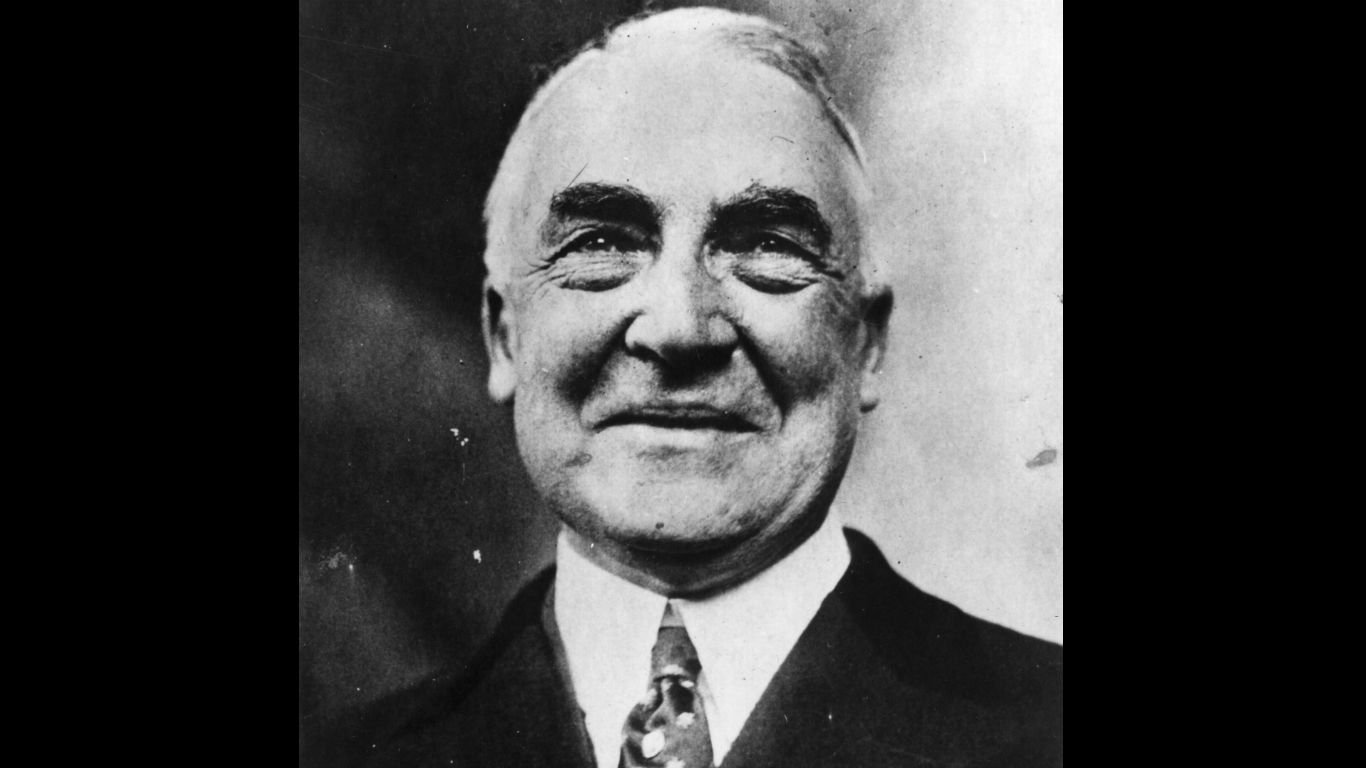
Warren Gamaliel Harding
> Term: 1921-1923 (29th president)
> Peak net worth (in current dollars): $1.0 million
Harding owed much of his net worth to his marriage. His wife Mabel was the daughter of a prominent banker. Harding owned the Marion Daily Star and a small home in Marion, Ohio. Most of Harding’s net worth came from his newspaper ownership.
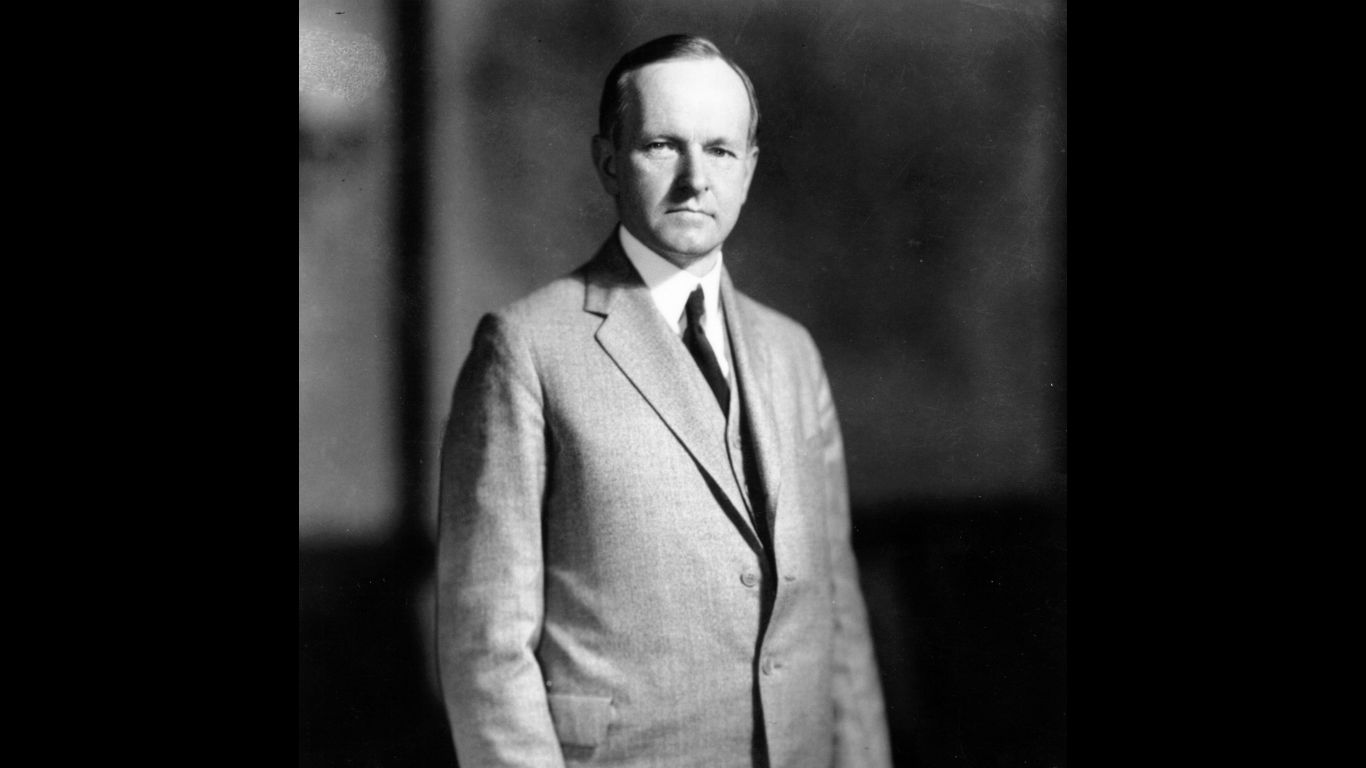
Calvin Coolidge
> Term: 1923-1929 (30th president)
> Peak net worth (in current dollars): < $1 million
Coolidge’s father was prosperous farmer and storekeeper. “Silent Cal” spent five years as an attorney and almost two decades in public office, which included time as Governor of Massachusetts. His net worth derived primarily from his home, “The Beeches,” in Northampton, Massachusetts. Some of Coolidge’s net worth can also be attributed to the advance he received on his autobiography, as well as the money he made from his newspaper column.
[in-text-ad-2]
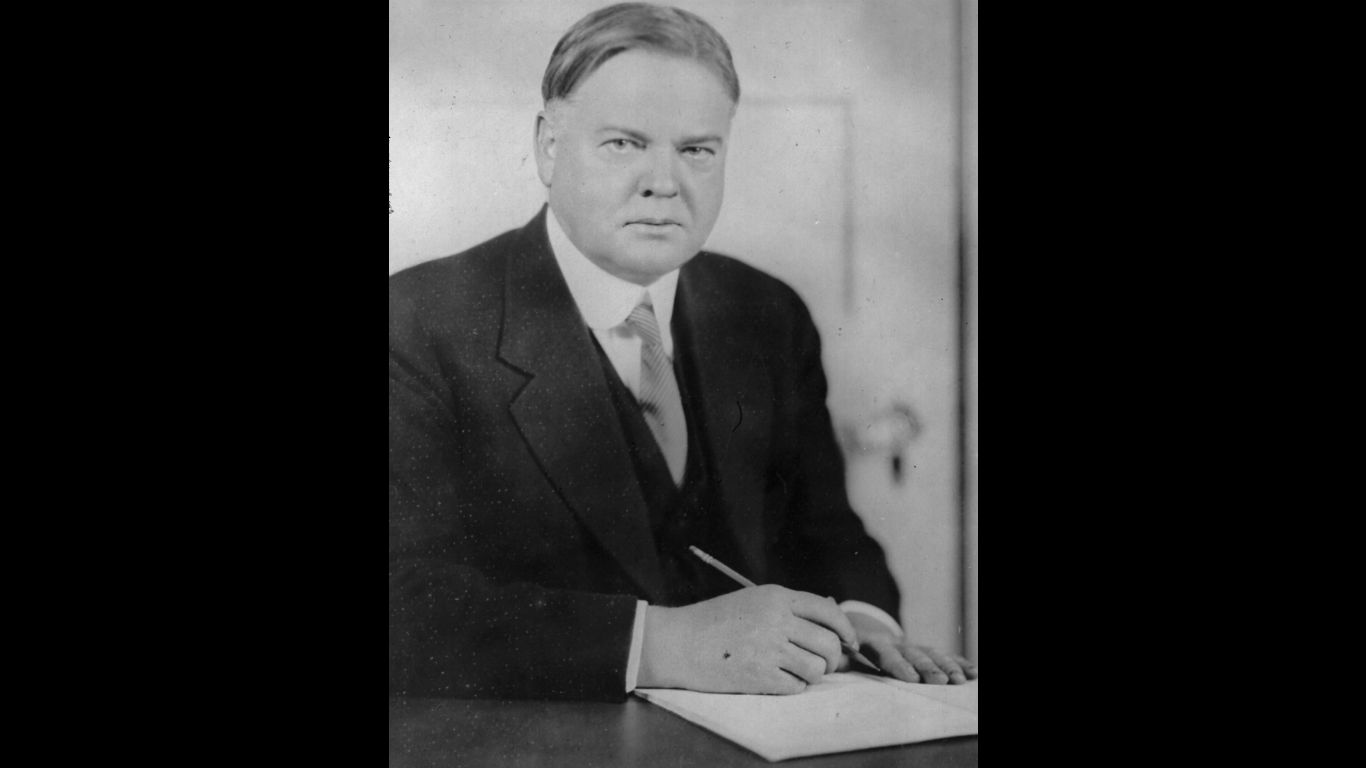
Herbert Clark Hoover
> Term: 1929-1933 (31st president)
> Peak net worth (in current dollars): $83.0 million
An orphan, Hoover was raised by his uncle, a doctor. He made a fortune as a mining company executive, had a very large salary for 17 years and had extensive holdings in mining companies. Hoover donated his presidential salary to charity. He also owned “Hoover House,” a mansion in Monterey, California.
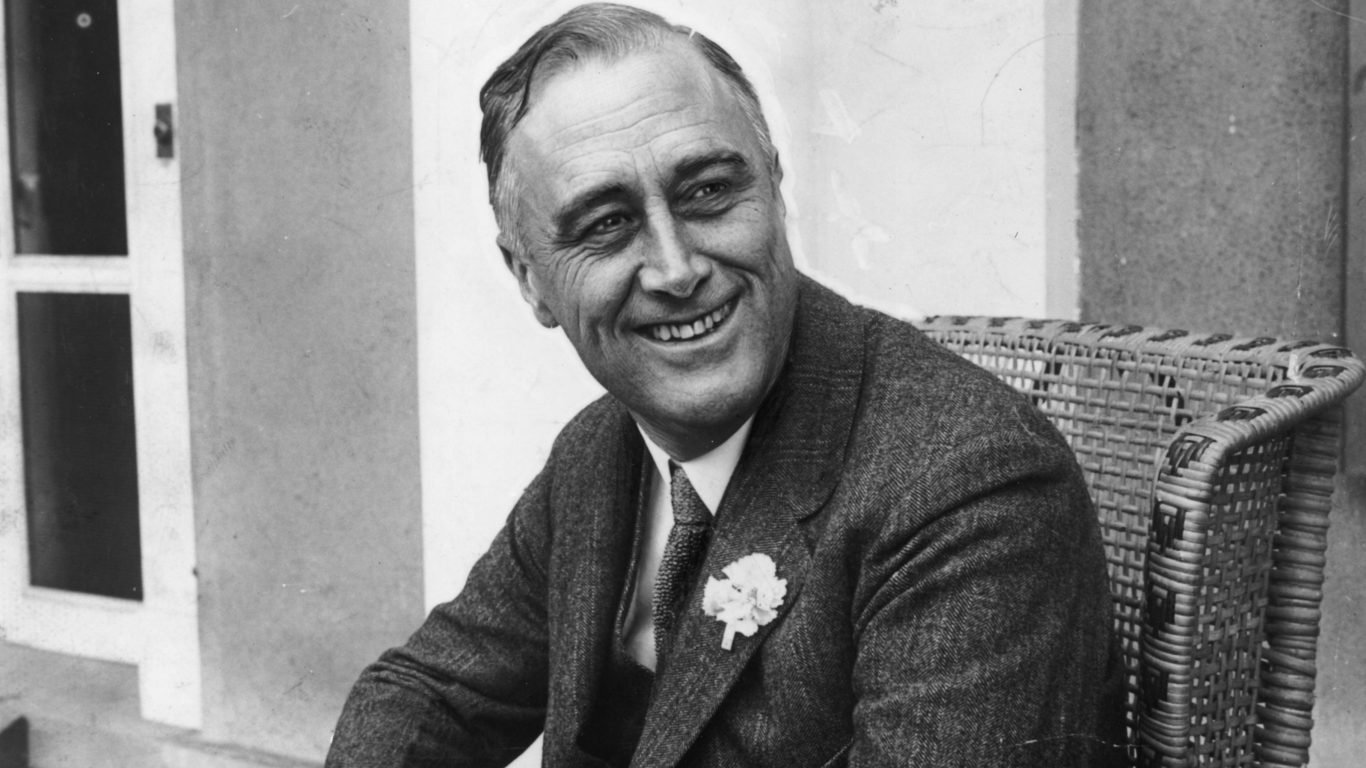
Franklin Delano Roosevelt
> Term: 1933-1945 (32nd president)
> Peak net worth (in current dollars): $66.8 million
Roosevelt had wealth through inheritance and marriage. He owned the 800-acre “Springwood” estate as well as properties in Georgia, Maine, and New York. In 1919, his mother had to bail him out of financial difficulty. He spent most of his adult life in public service. Before he was president, Roosevelt was appointed Assistant Secretary of the Navy by Woodrow Wilson.
[in-text-ad]
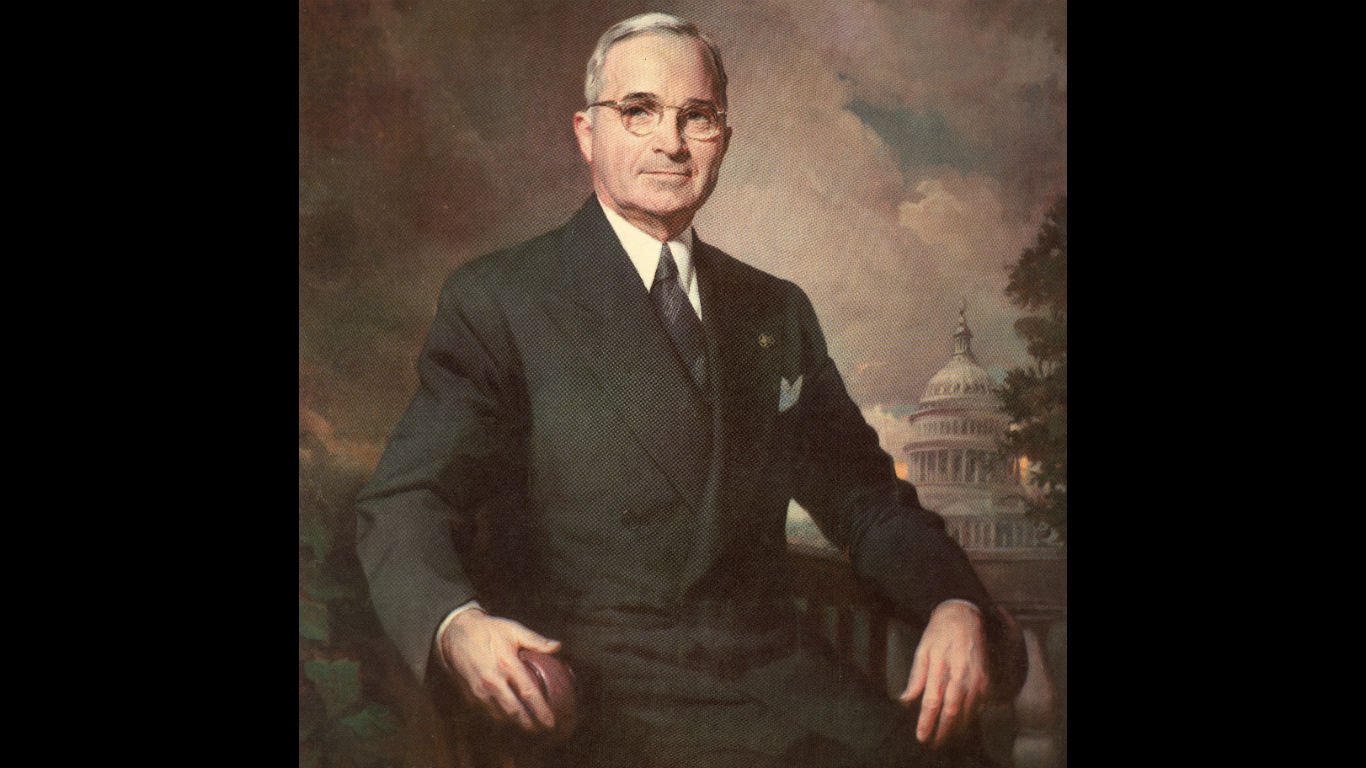
Harry S. Truman
> Term: 1945-1953 (33rd president)
> Peak net worth (in current dollars): < $1 million
Truman was a haberdasher in Missouri and nearly went bankrupt. He served 18 years in Washington, D.C. Despite his modest income, he was able to save some of his presidential salary. He was also the first ever Medicare recipient.

Dwight David Eisenhower
> Term: 1953-1961 (34th president)
> Peak net worth (in current dollars): $9.1 million
Eisenhower had no inherited wealth. He served the majority of his career in the military and five years as president of Columbia University. Ike owned a large farm near Gettysburg, Pennsylvania.

John Fitzgerald Kennedy
> Term: 1961-1963 (35th president)
> Peak net worth (in current dollars): $1.1 billion
Born into great wealth, Kennedy’s wife was an oil heiress. His Father was one of the wealthiest men in America, and was the first chairman of the SEC. Almost all of JFK’s income and property came from a trust shared with other family members.
[in-text-ad-2]
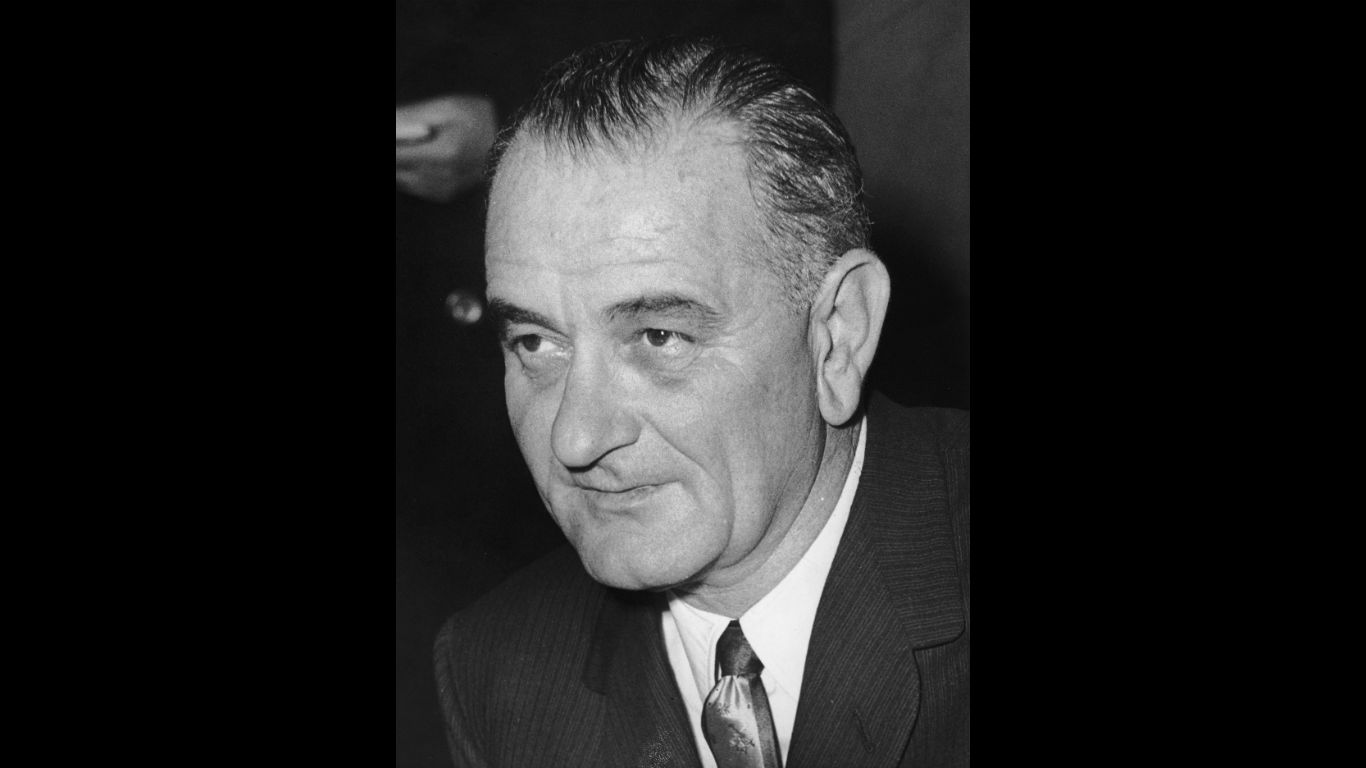
Lyndon Baines Johnson
> Term: 1963-1969 (36th president)
> Peak net worth (in current dollars): $109.3 million
Johnson’s father lost all of the family’s money when LBJ was a boy. Over time, he accumulated 1,500 acres in Blanco County, Texas, which included his home, called the “Texas White House.” He and his wife owned a radio and television station in Austin, Texas, and had a variety of other moderate holdings, including livestock and private aircraft.
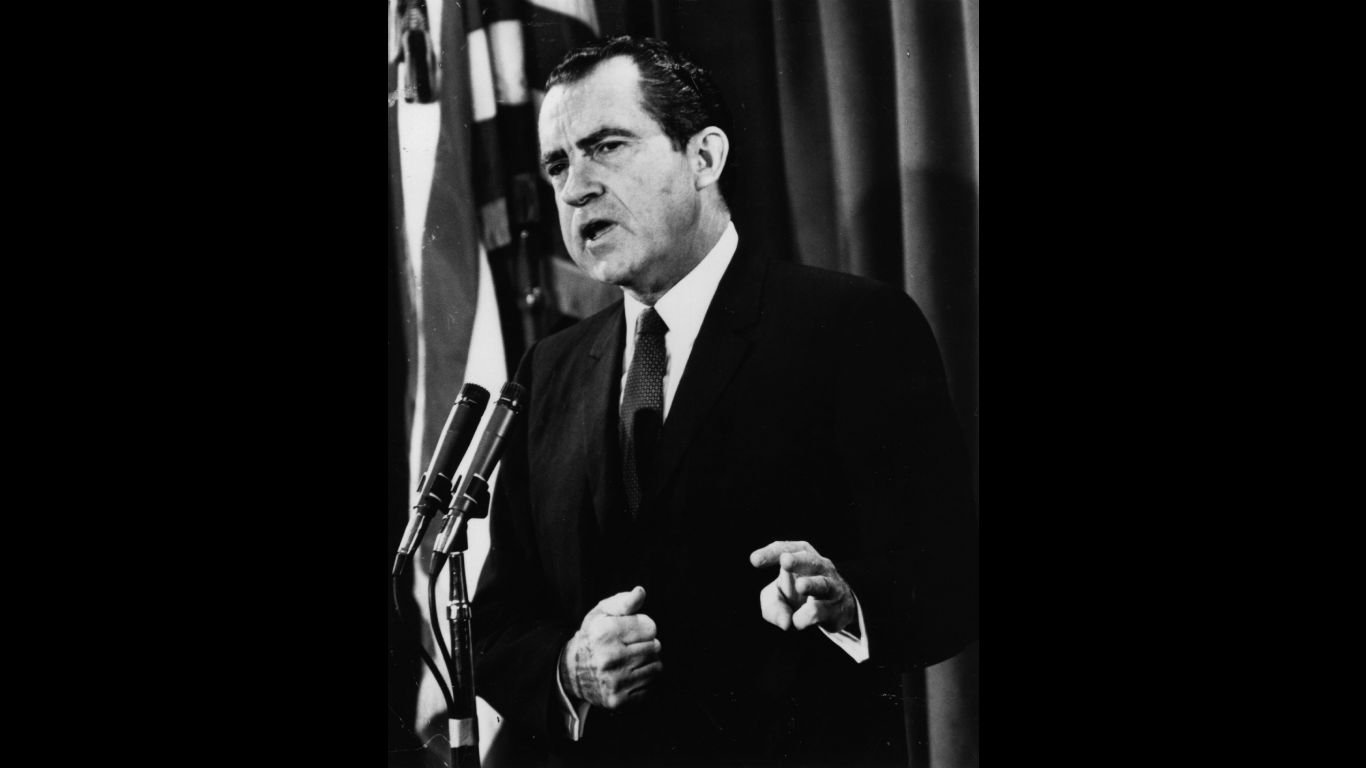
Richard Milhous Nixon
> Term: 1969-1974 (37th president)
> Peak net worth (in current dollars): $17.2 million
Nixon was born without any inheritance, and was a public servant for most of his life, including a term as a senator from California. “Tricky Dick” made significant sums from a series of interviews with David Frost and book advances. He sold his New York townhouse to the Syrian ambassador to the U.S. and purchased a large home in Saddle River, New Jersey. At various times, Nixon also owned real estate in California and Florida.
[in-text-ad]
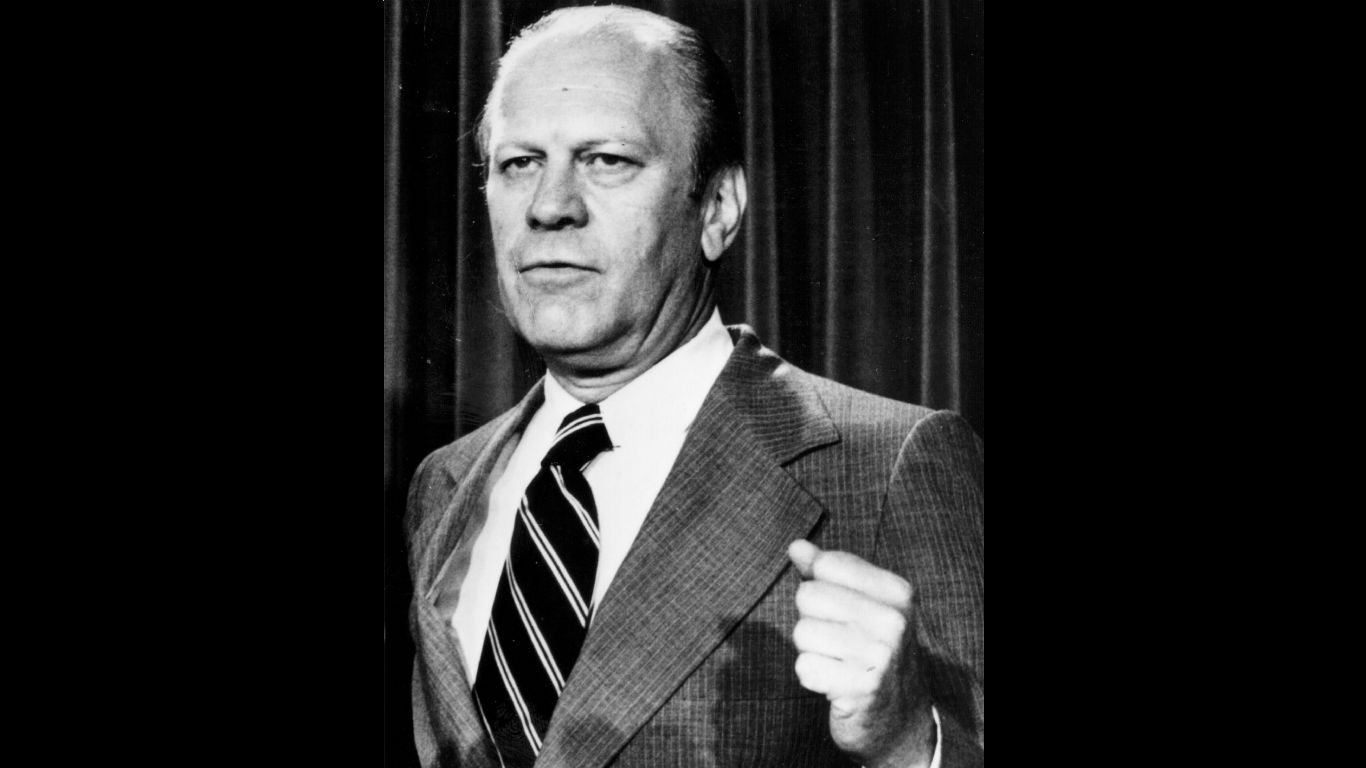
Gerald Rudolph Ford Jr.
> Term: 1974-1977 (38th president)
> Peak net worth (in current dollars): $8.1 million
Ford had no inheritance and he spent virtually his entire adult life in public service. Over the course of his lifetime, he owned properties in Michigan, Rancho Mirage, and Beaver Creek, Colorado. After he left the White House in 1976, he made nearly $1 million a year from book advances and from serving on the boards of several prominent American companies.

James Earl Carter
> Term: 1977-1981 (39th president)
> Peak net worth (in current dollars): $8.1 million
Jimmy Carter’s father worked as a peanut farmer in rural Georgia and he did not leave the 39th president much of a inheritance. Carter took over the family farm following his father’s death and struggled to make it successful. In his first year on the farm, Carter made just $200 and he and his wife were forced to live in subsidized housing. Carter turned the farm into a successful agriculture business, but left the White House in debt. The business failed as it went unsupervised after Carter put it into a blind trust. Carter improved his finances by writing books. He and his wife have published more than 25 books and now own 2,500 acres of land in Georgia.

Ronald Wilson Reagan
> Term: 1981-1989 (40th president)
> Peak net worth (in current dollars): $14.2 million
Reagan had no inheritance, but made money as a movie and television actor for over two decades. “The Gipper” owned several pieces of real estate over his lifetime, including a 688-acre property near Santa Barbara, California. Reagan was highly paid for his role as a GE spokesman before his political career. He also made significant money from his autobiography.
[in-text-ad-2]

George Herbert Walker Bush
> Term: 1989-1993 (41st president)
> Peak net worth (in current dollars): $26.3 million
George H.W. Bush, as part of the wealthy and powerful Bush family, has always been financially well off. Bush made his initial fortune running an offshore oil drilling company and owned millions of dollars worth of property, including an estate in Kennebunkport, Maine, which is believed to be worth more than $5 million.

William Jefferson Clinton
> Term: 1993- 2001 (42nd president)
> Peak net worth (in current dollars): $75.9 million
Bill Clinton was not wealthy before or even during his time in the White House, but he and his wife, Hillary, have made substantial money through book deals and paid speeches. Bill Clinton received $15 million for his book “My Life,” and Hillary was paid a $14 million advance for her book “Hard Choices.”
[in-text-ad]

George W. Bush
> Term: 2001-2008 (43rd president)
> Peak net worth (in current dollars): $39.5 million
George W. Bush was a successful businessman before becoming the Governor of Texas. He made millions in the oil industry and even owned the Texas Rangers professional baseball team at one point. Bush has made tens of millions of dollars in speaking fees and a book deal since leaving office.
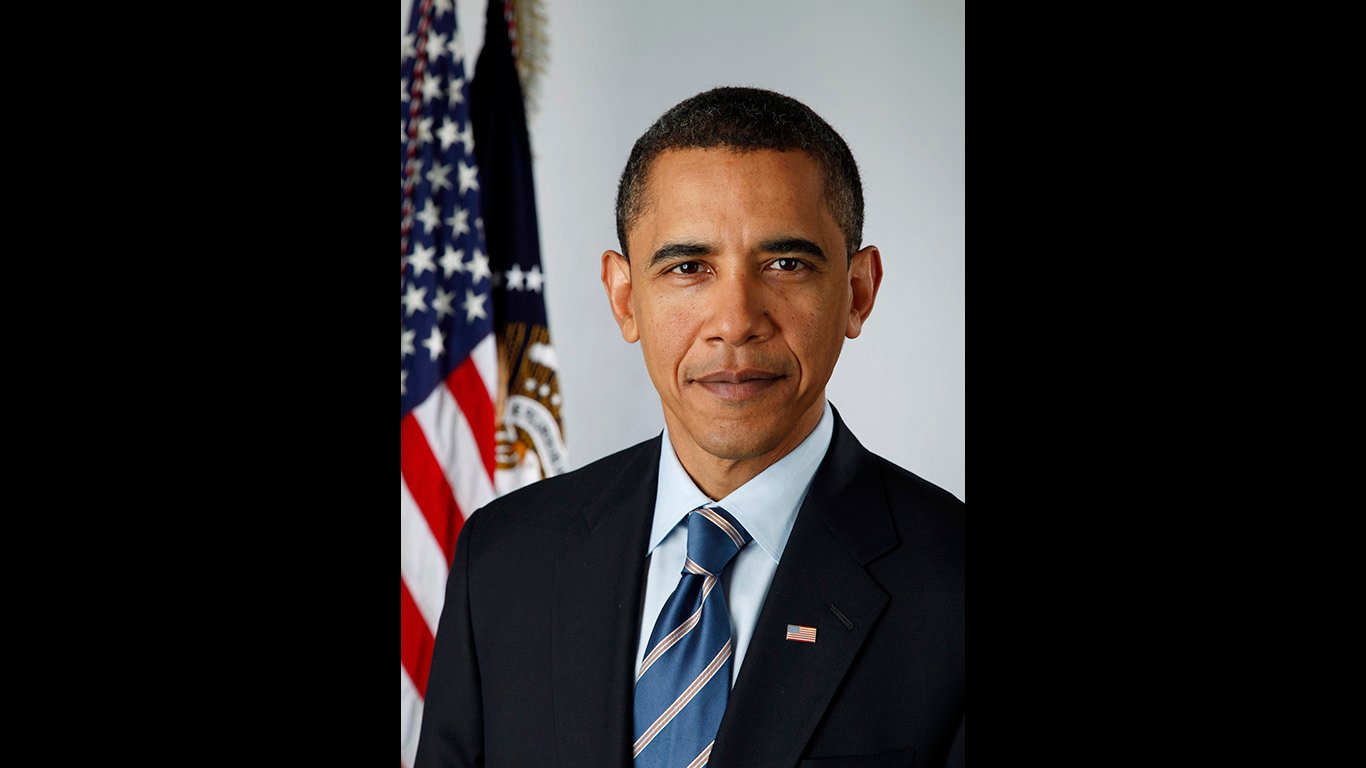
Barack Hussein Obama
> Term: 2008-2017 (44th president)
> Peak net worth (in current dollars): $40.0 million
It’s difficult to know exactly how much wealth Barack Obama actually has this soon after he left office, but he is certainly well off. Obama and his wife, Michelle, reportedly signed a $65 million deal for the rights to their memoir, but it is unclear how much of that money they have received. Former presidents often make six figures for paid speeches, and since Obama is known as a great orator, many organizations are likely be lining up for his services. While Obama’s net worth is somewhat unclear, it will certainly continue to climb. American University estimates the Obamas could earn up to $242 million in the coming years.

Donald John Trump
> Term: 2017- present (45th president)
> Peak net worth: $3.1 billion
America’s current president is also the wealthiest by far. Donald Trump took over his father’s real estate company and turned it into a massive success. Through his company, Trump owns billions of dollars worth of real estate and golf courses in the United States and abroad.
Detailed Findings
Wealth is no longer a de facto prerequisite for the presidency, but thanks to the lucrative opportunities afforded to those with the title “ex-president,” wealth for those who have finished their term may be a guarantee.
Several presidents went into debt after their time in office, but that may never happen again. Recent presidents have received multi-million dollar offers for the rights to their memoirs about life in the Oval Office. Barack Obama and his wife, Michelle, reportedly inked a deal worth over $60 million for the rights to their book.
Net worth is always difficult to calculate, especially when comparing figures across four different centuries. In the early days of America, land ownership had significant social and political value, meaning those with the most land typically also had the most wealth.
U.S. presidents have been anywhere from some of the wealthiest people in the country to being quite poor. Their wealth, however, does not seem to have an impact on the quality of their presidency. George Washington would have hundreds of millions of dollars in today’s money. Abraham Lincoln never had much money and spent much of his life doing odd jobs before getting into politics. Both are regarded as great leaders and influential figures in American history.
24/7 Wall St. analyzed the finances of U.S. presidents based on historical sources. The figures are adjusted for inflation to December 2017 levels, the most recent level available. We have accounted for hard assets such as real estate, estimated lifetime savings based on work history and inheritance. We also considered annual salaries, incomes earned from royalties on books, ownership of companies, yields from family estates, and other forms of income.
For deceased presidents, the ranking is based on peak net worth, or how much a president’s combined assets were worth at the time in their life when they were the richest. Many presidents became impoverished or even went into debt after their time in office. For living presidents, the estimate is based on current figures.
Smart Investors Are Quietly Loading Up on These “Dividend Legends”
If you want your portfolio to pay you cash like clockwork, it’s time to stop blindly following conventional wisdom like relying on Dividend Aristocrats. There’s a better option, and we want to show you. We’re offering a brand-new report on 2 stocks we believe offer the rare combination of a high dividend yield and significant stock appreciation upside. If you’re tired of feeling one step behind in this market, this free report is a must-read for you.
Click here to download your FREE copy of “2 Dividend Legends to Hold Forever” and start improving your portfolio today.
Thank you for reading! Have some feedback for us?
Contact the 24/7 Wall St. editorial team.
 24/7 Wall St.
24/7 Wall St. 24/7 Wall St.
24/7 Wall St. 24/7 Wall St.
24/7 Wall St.
